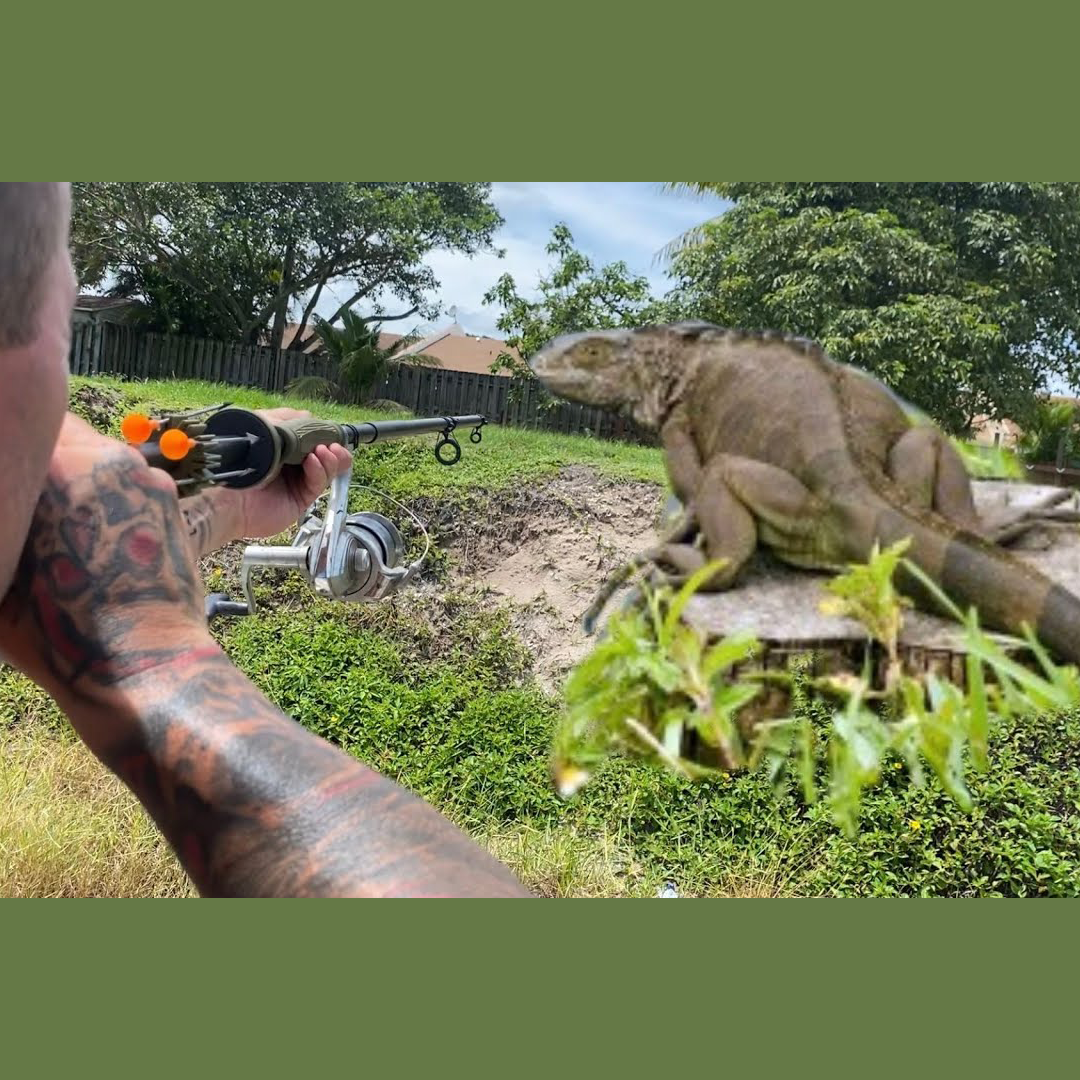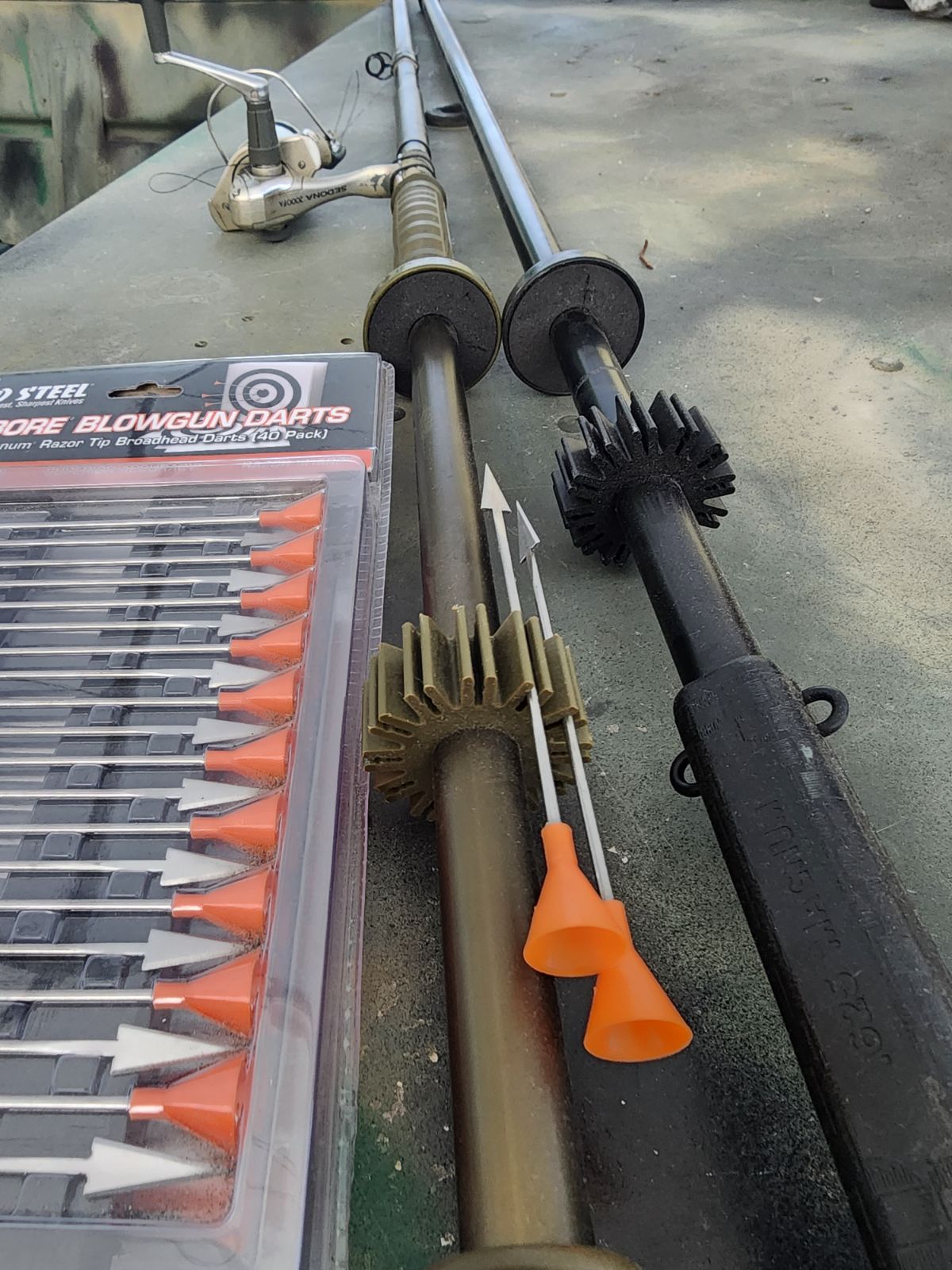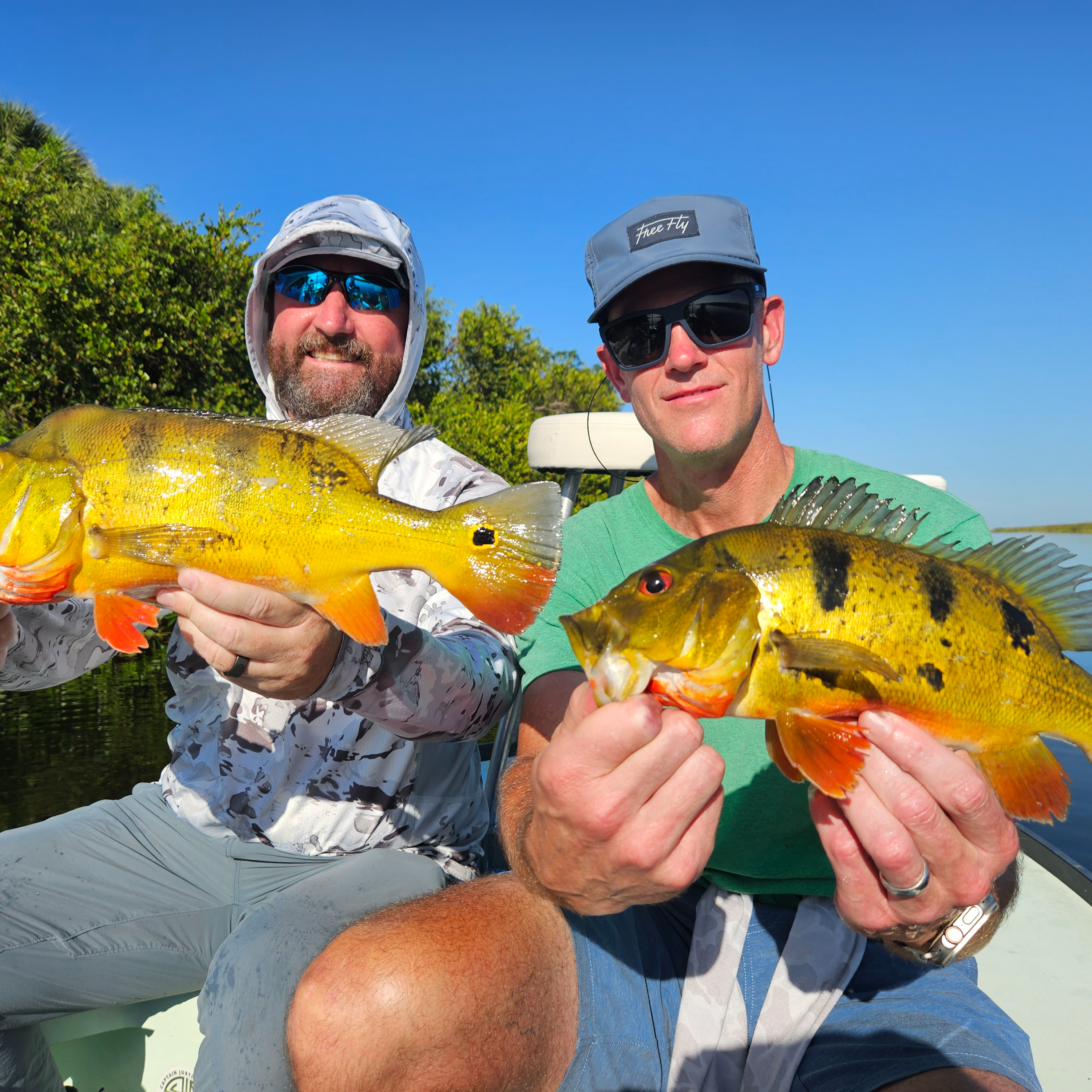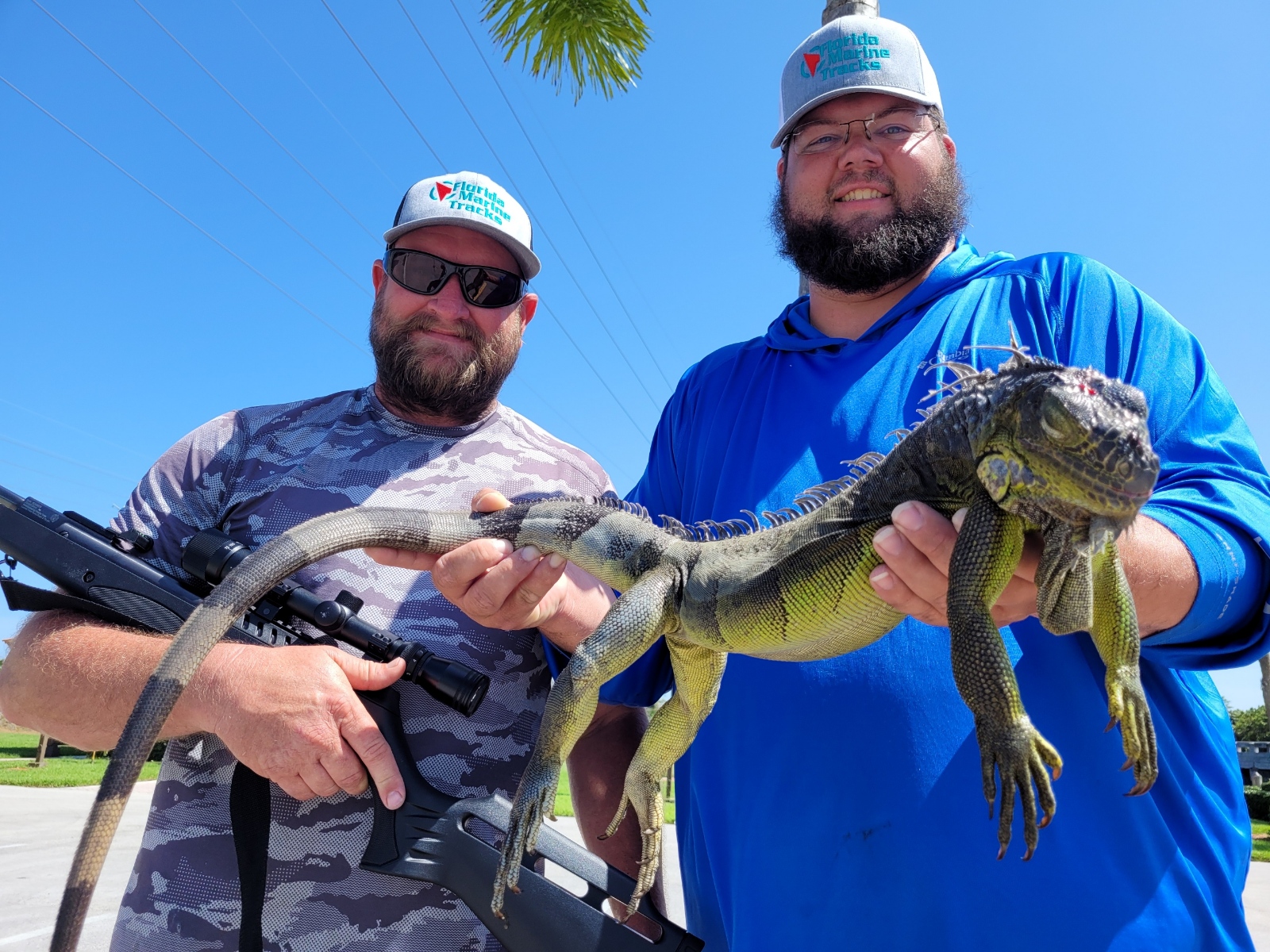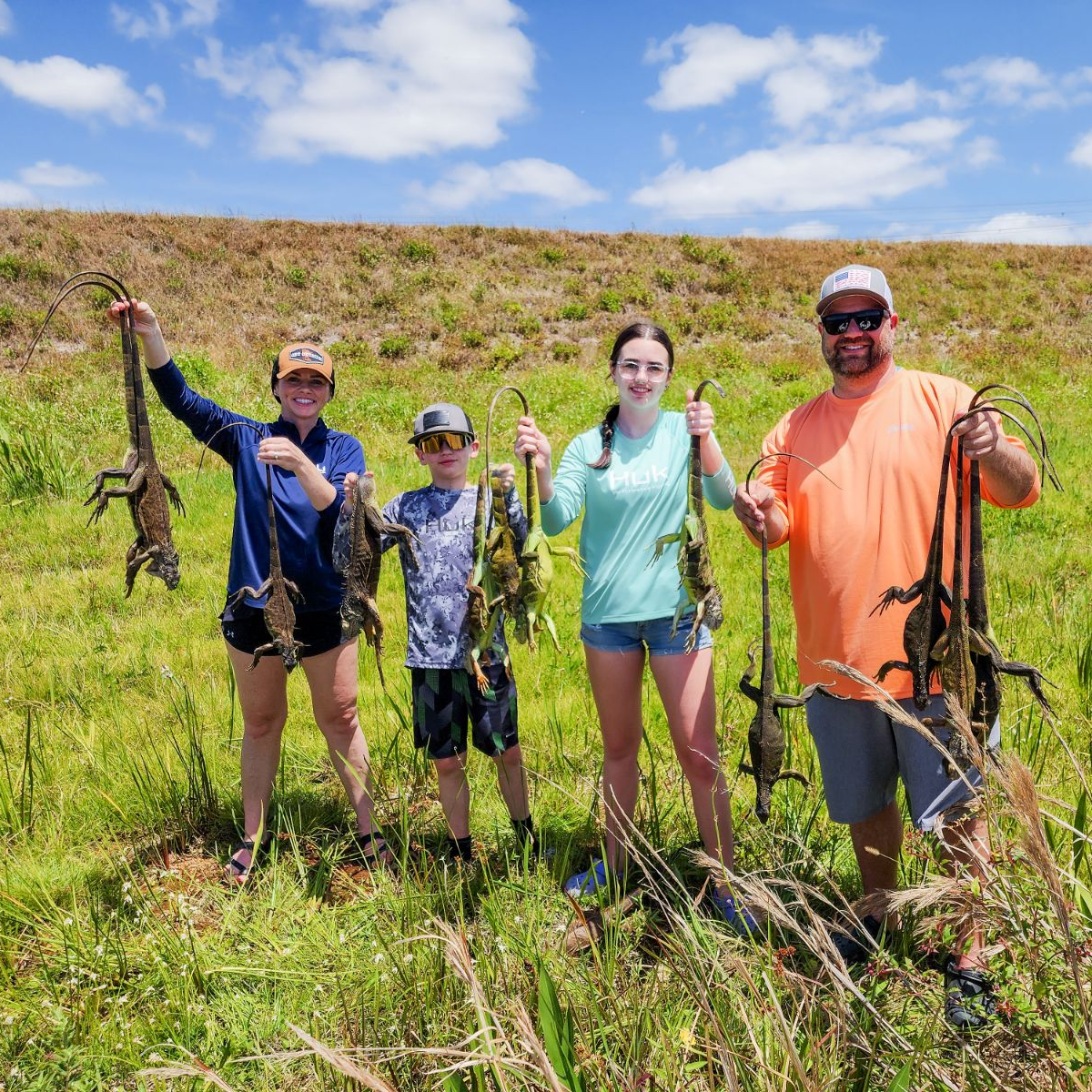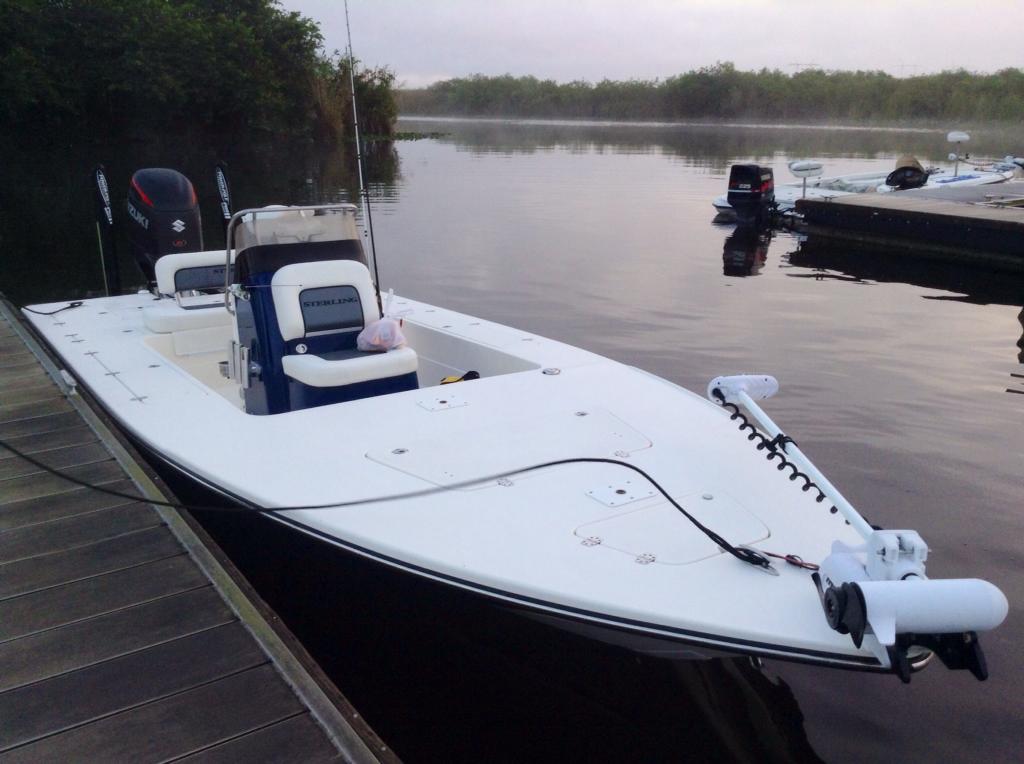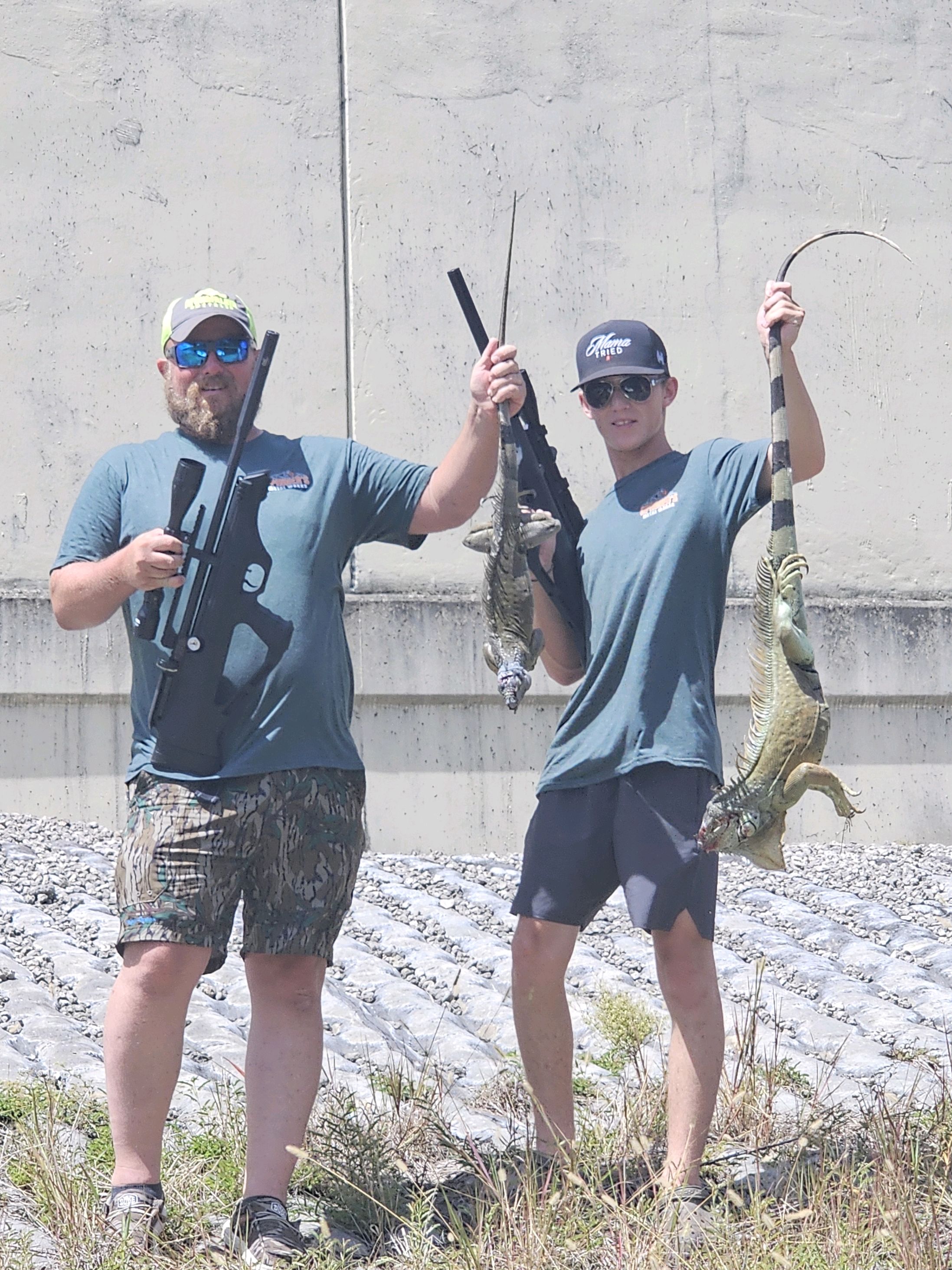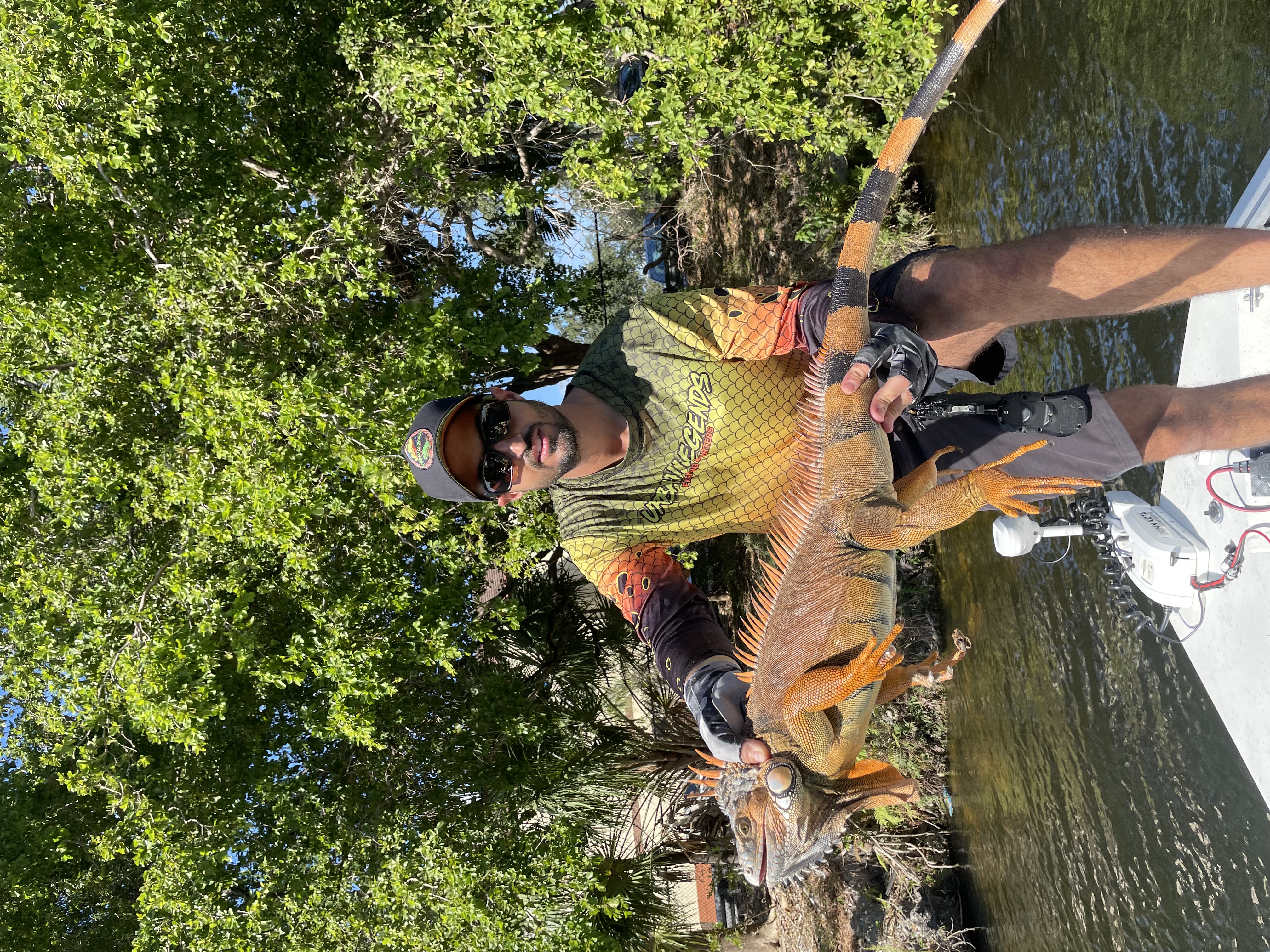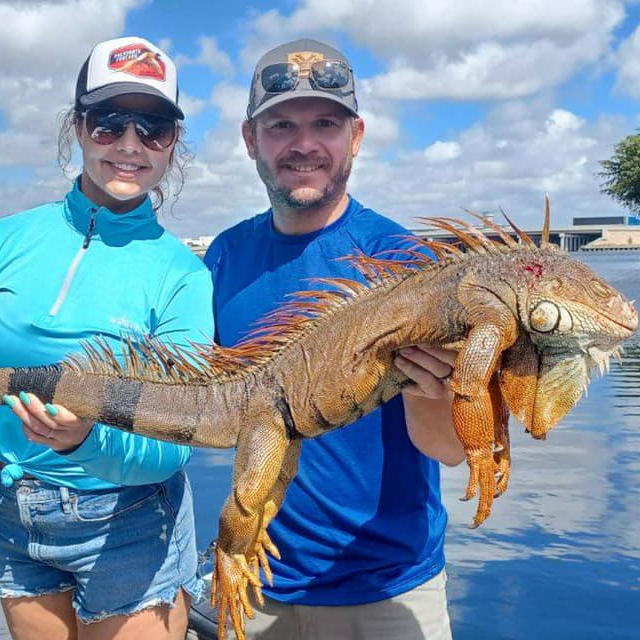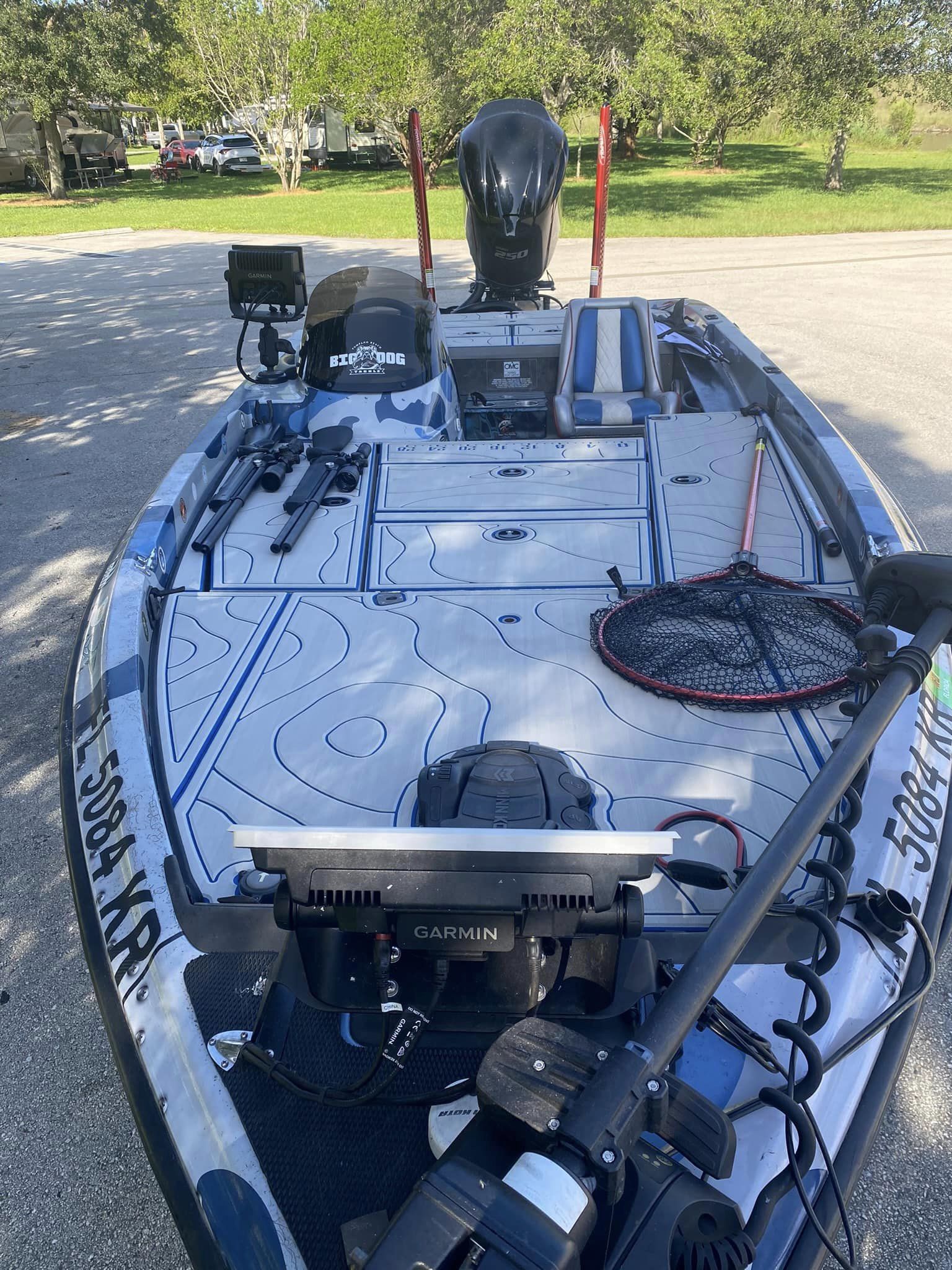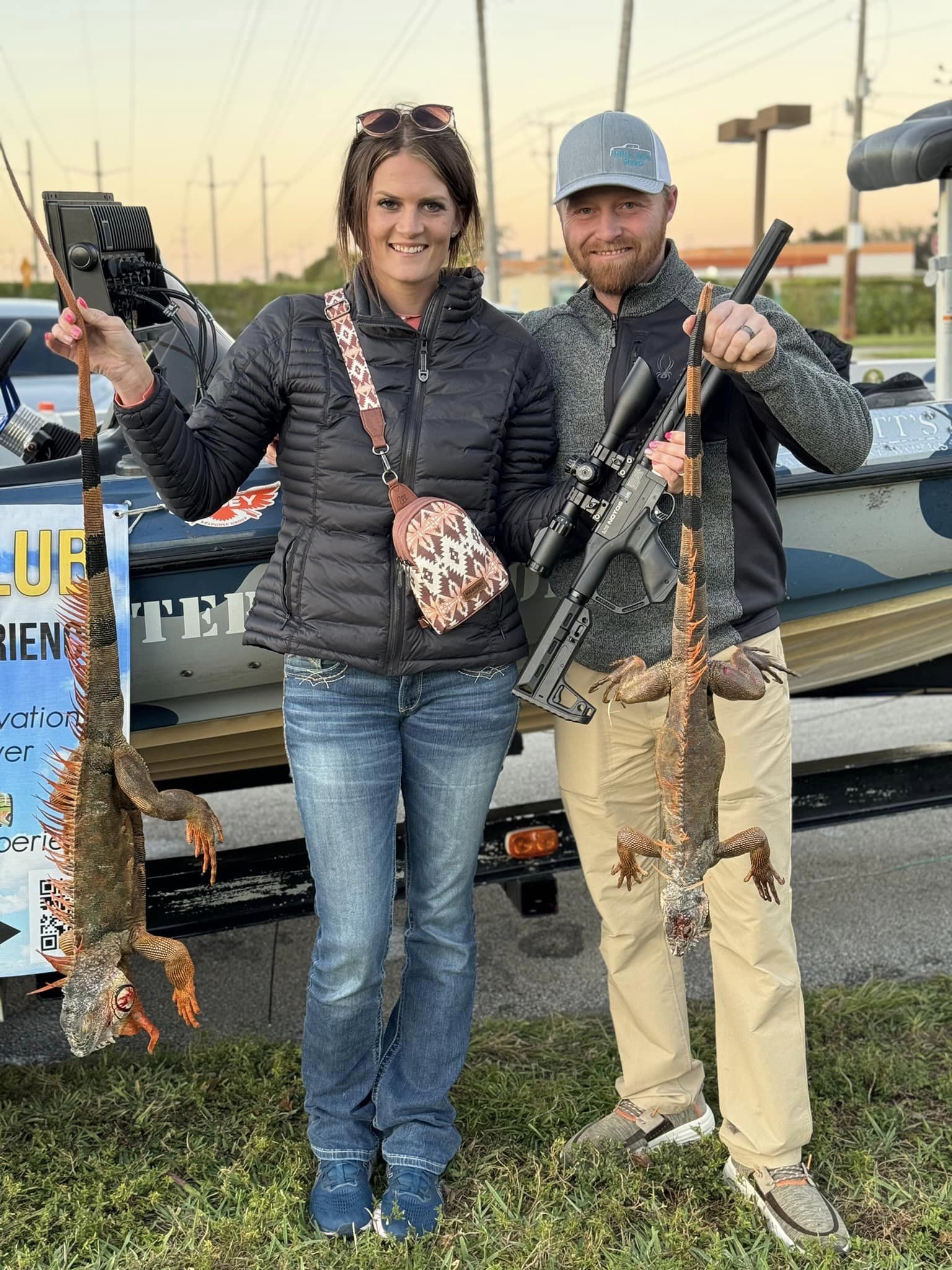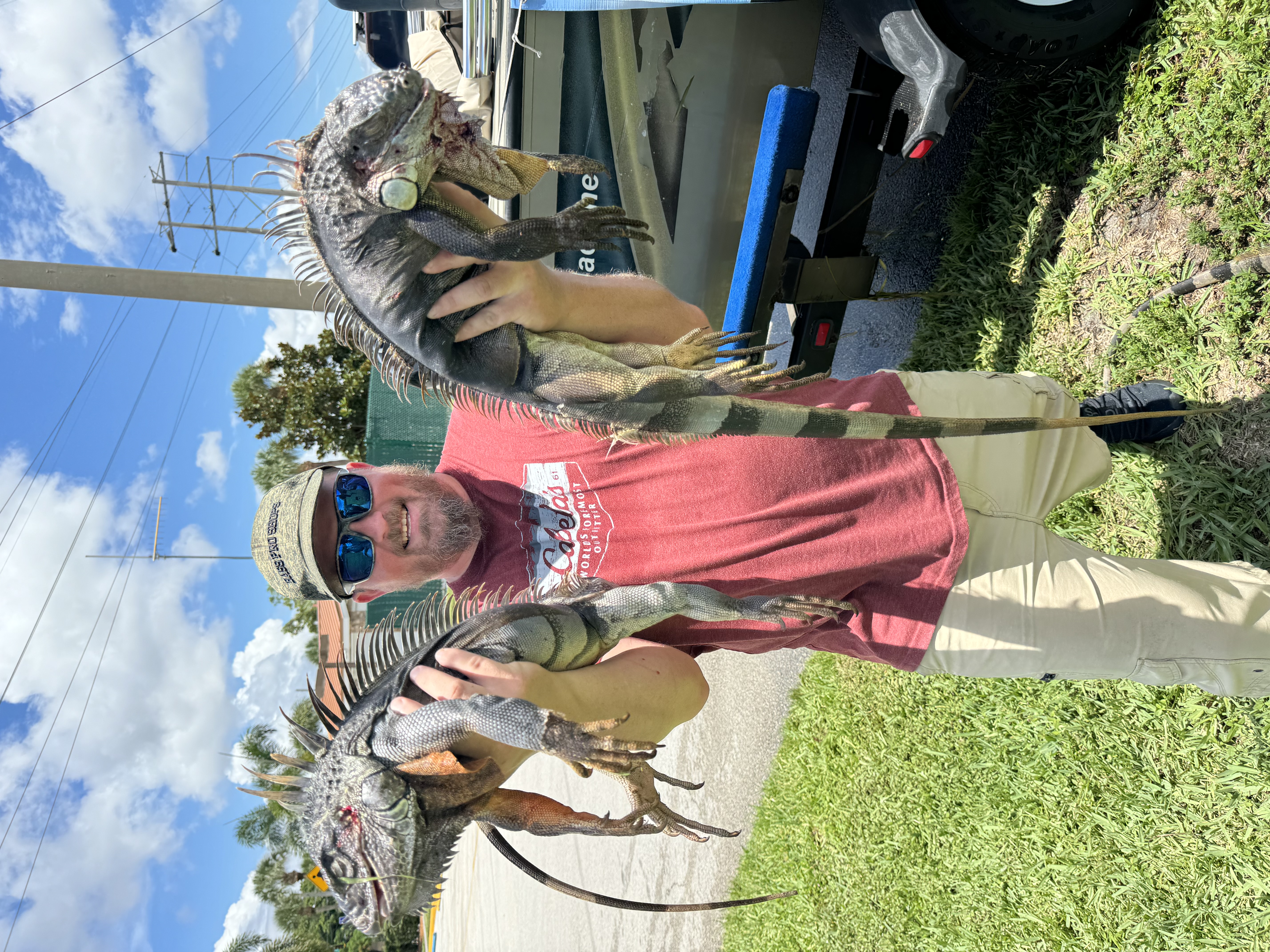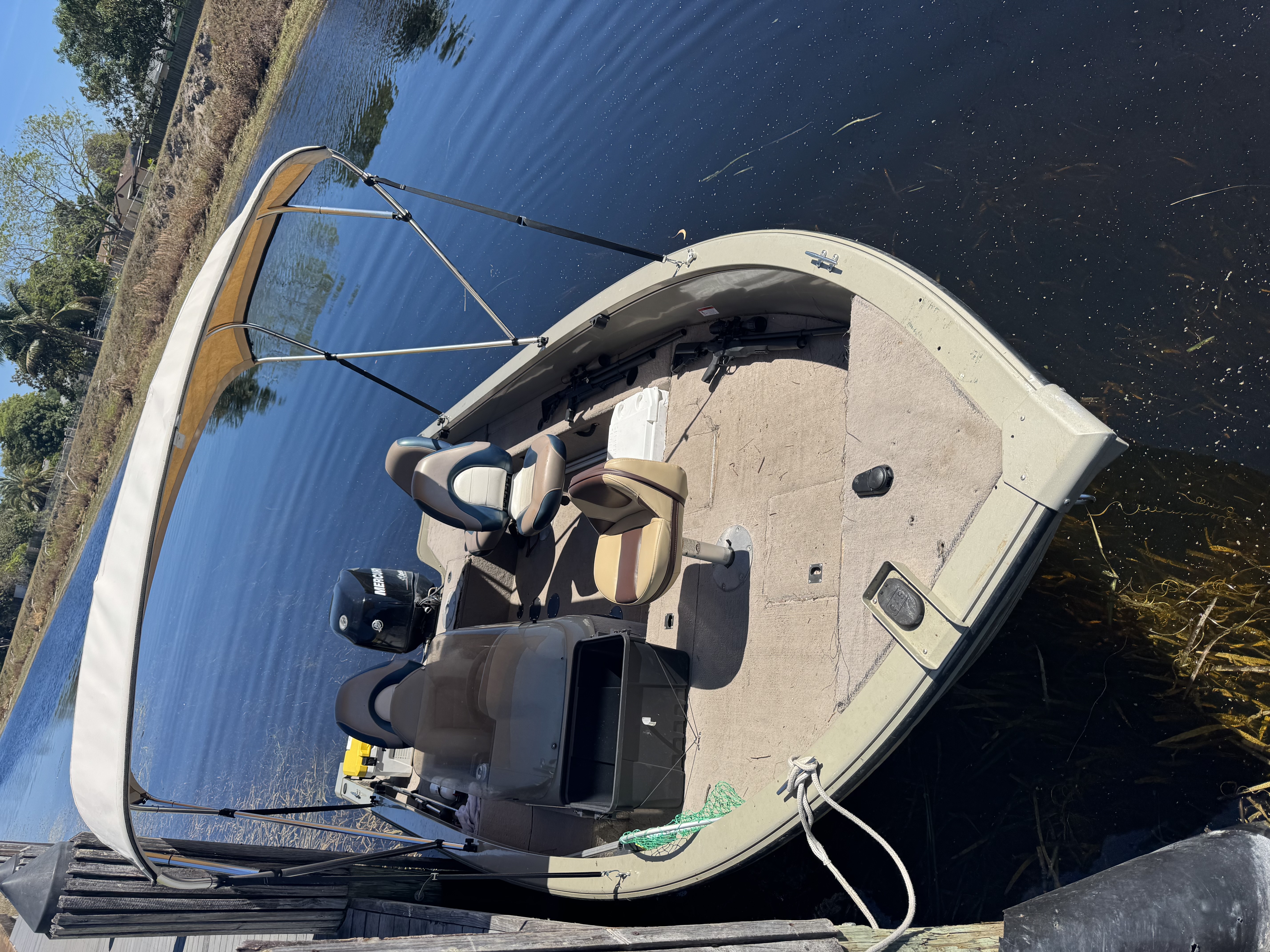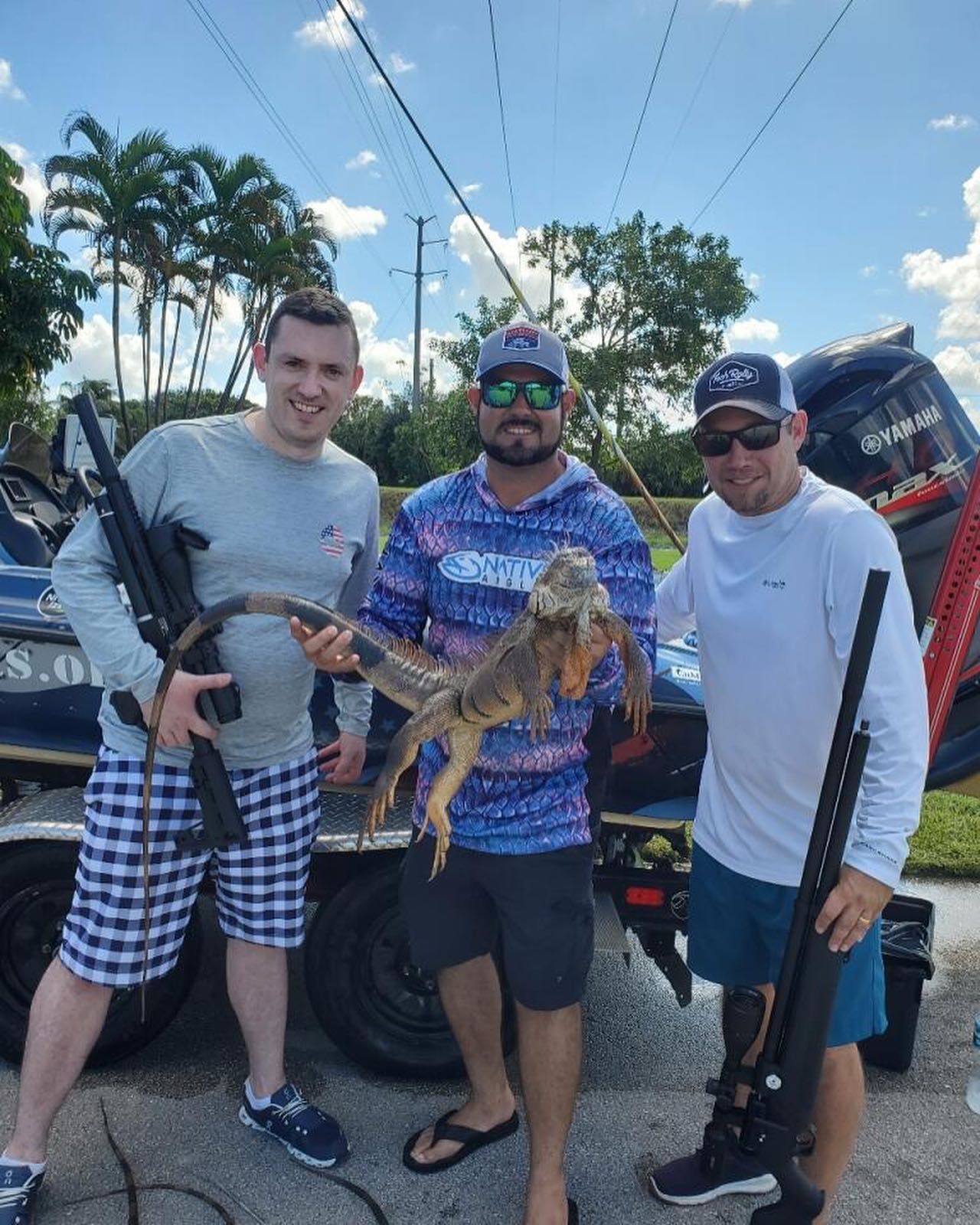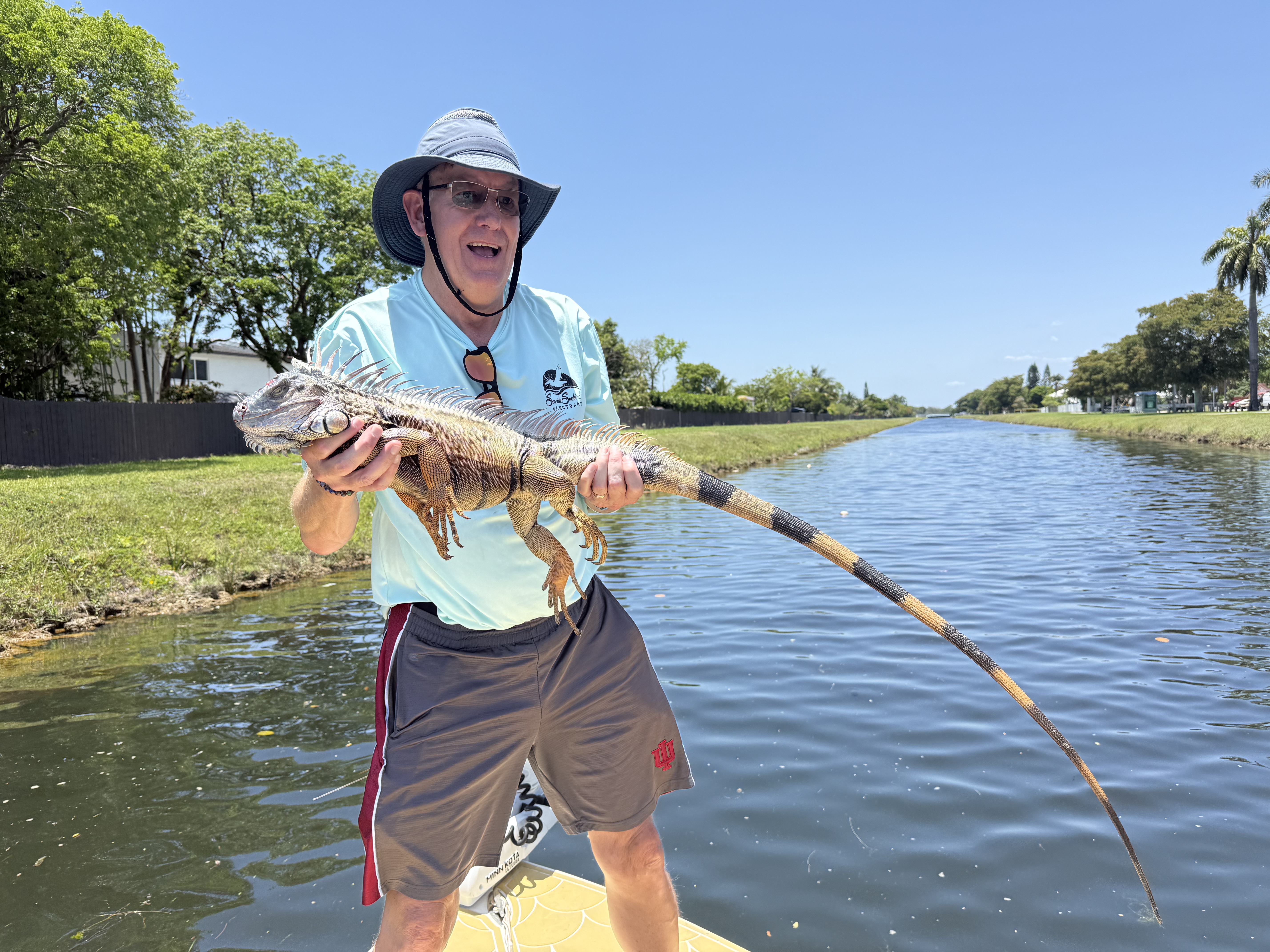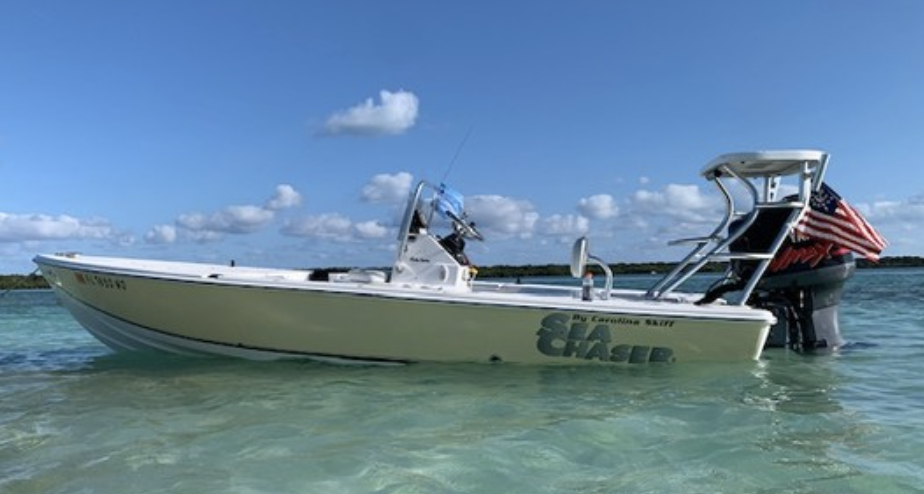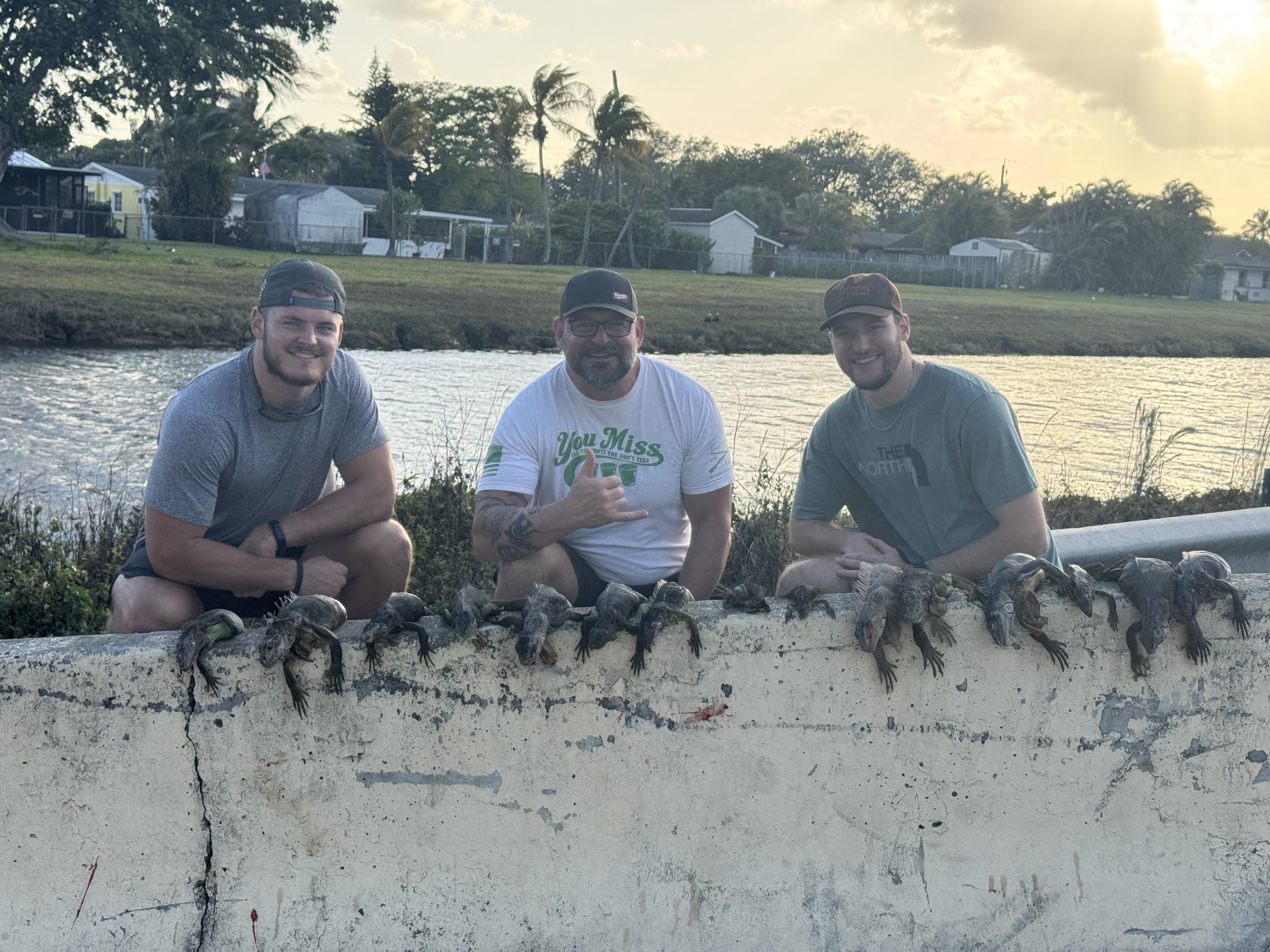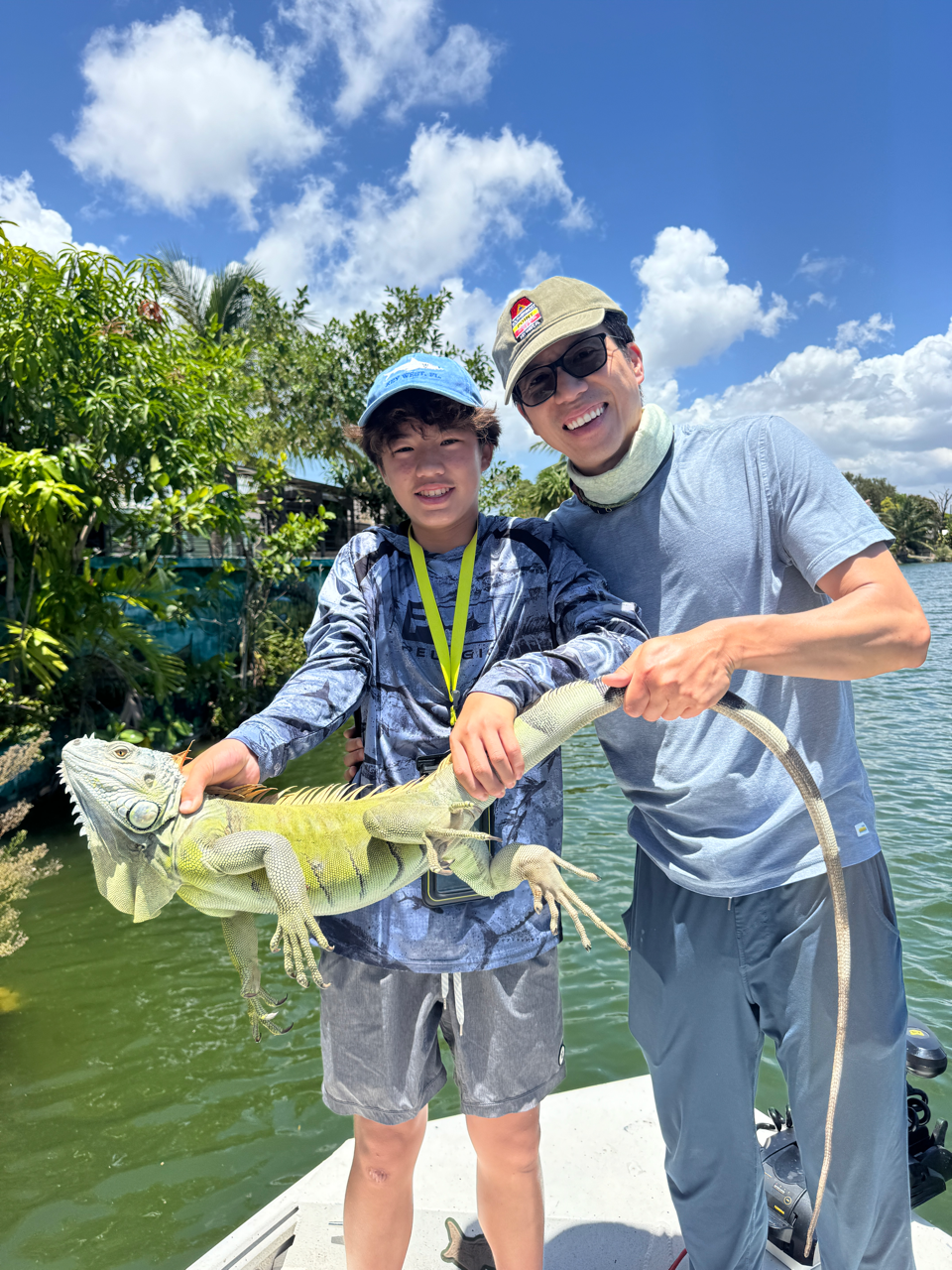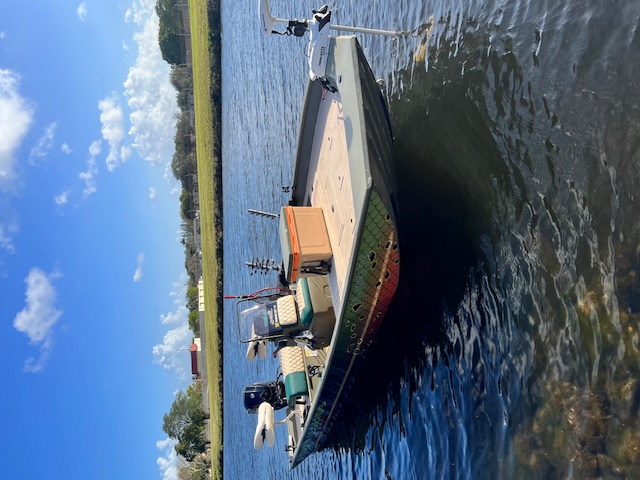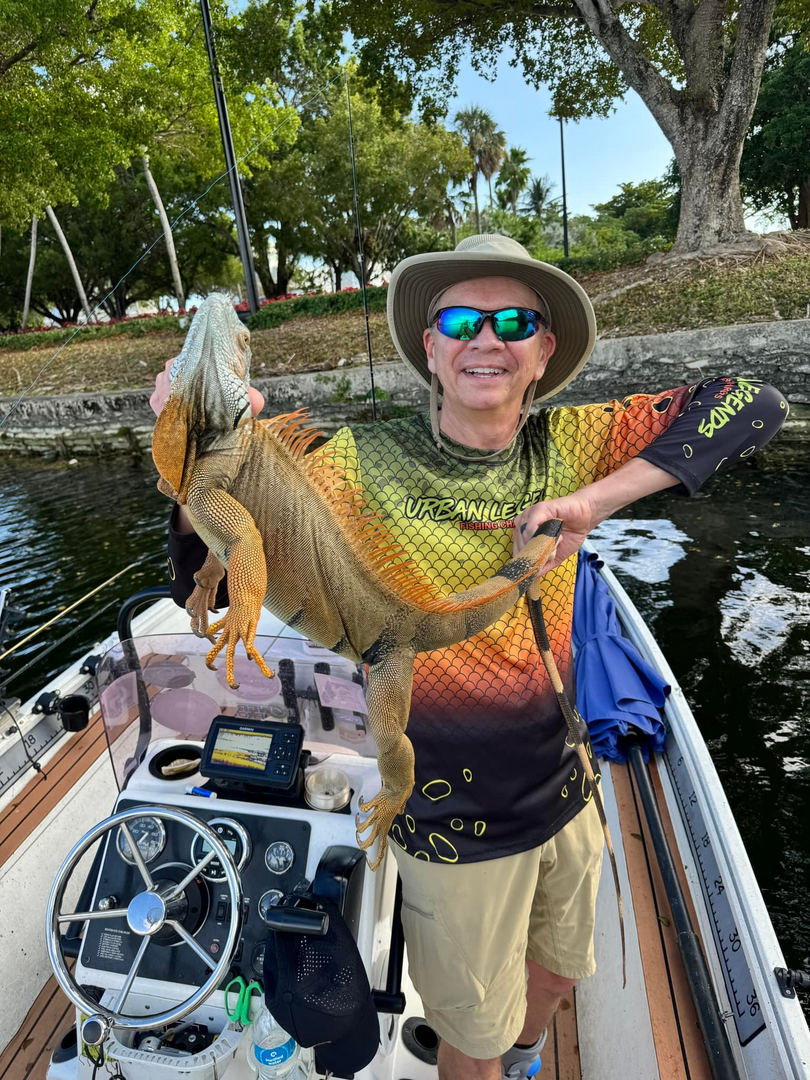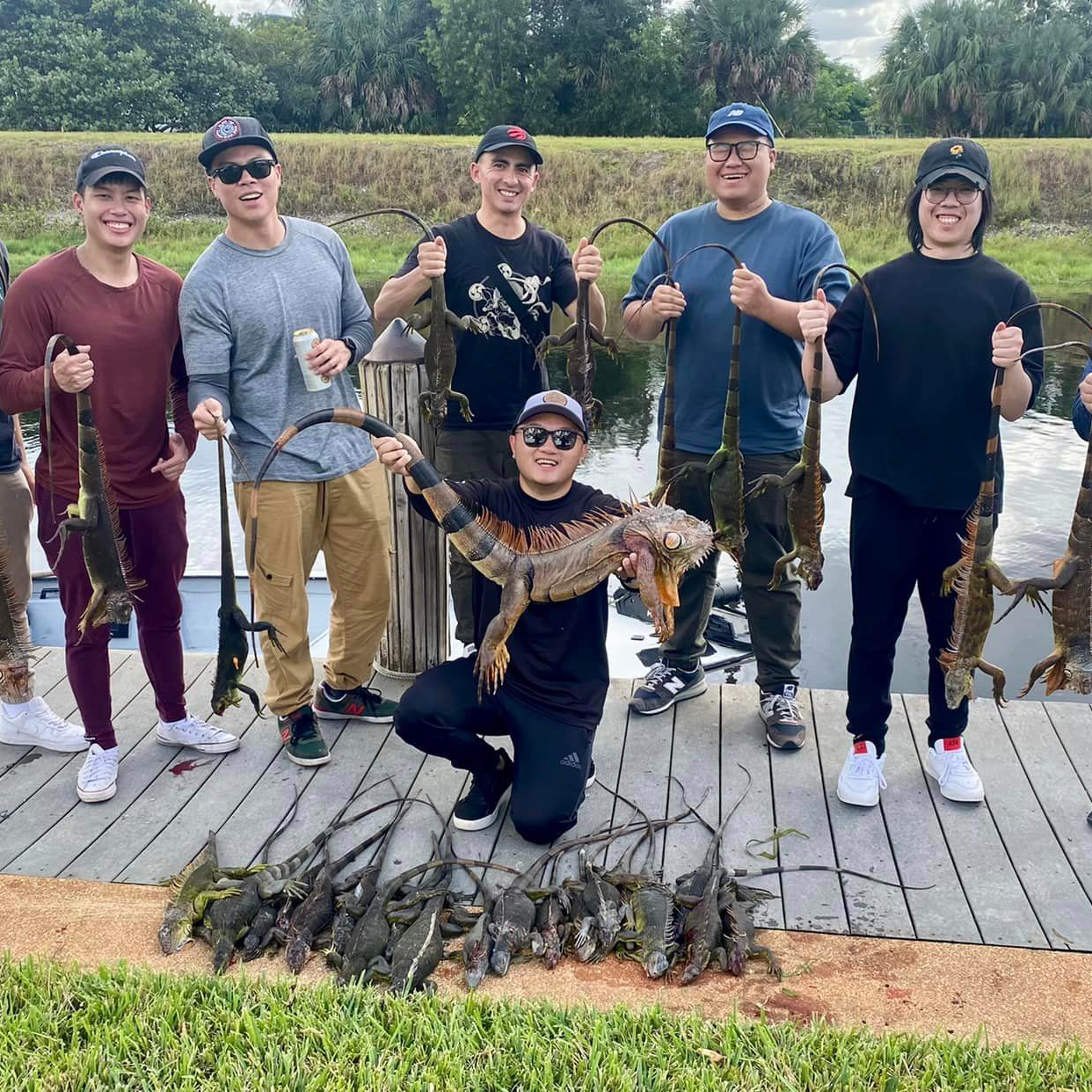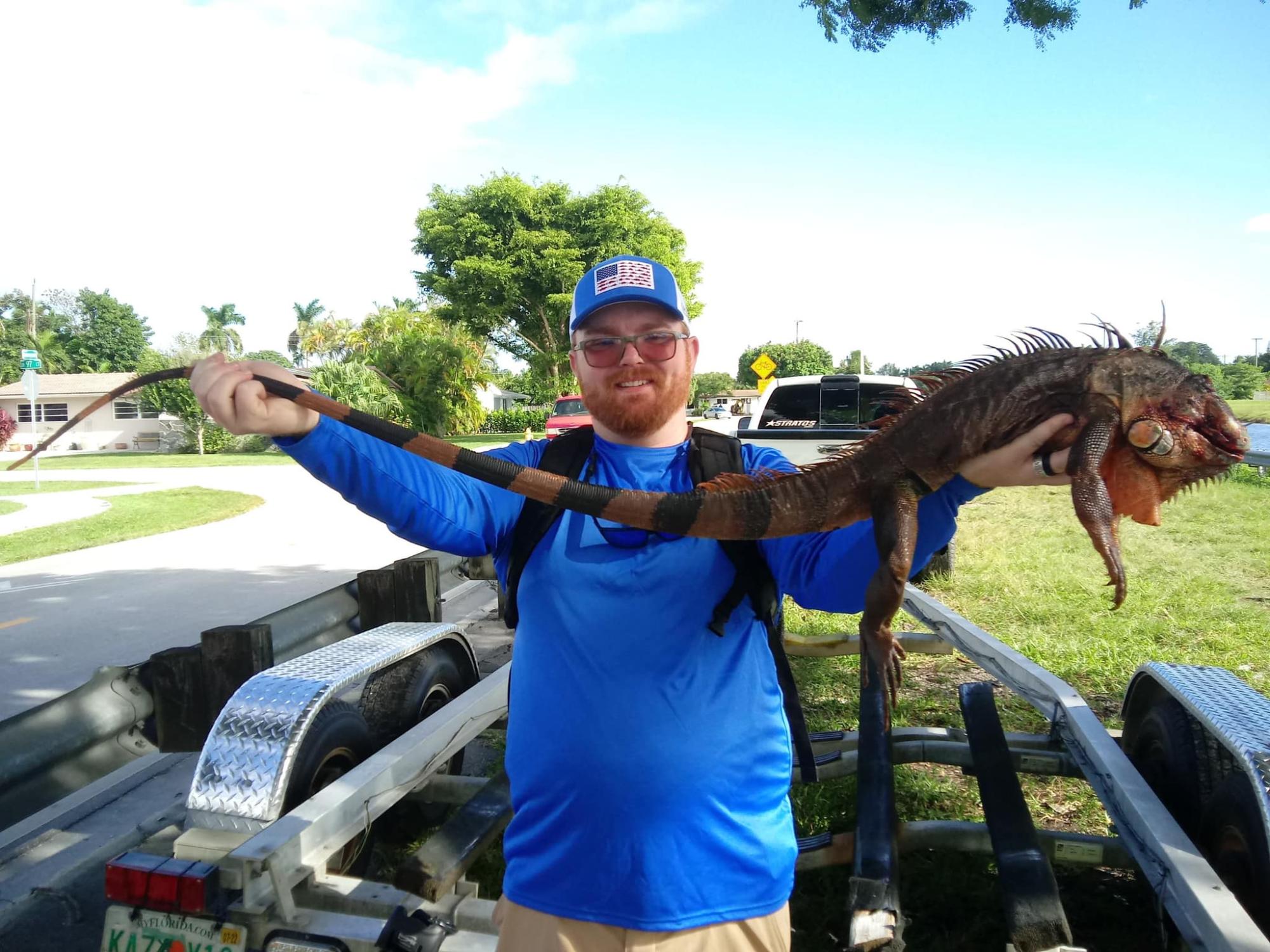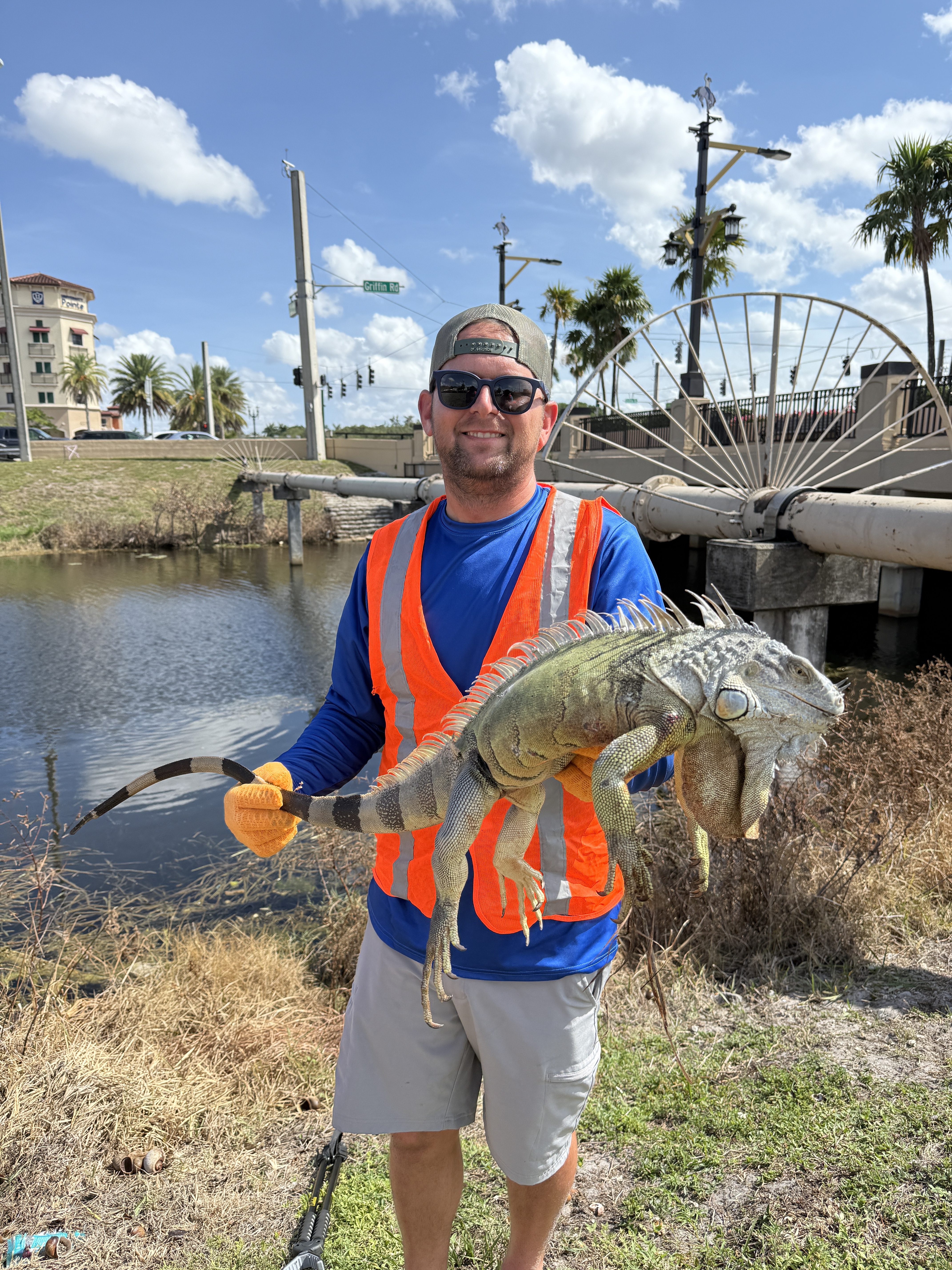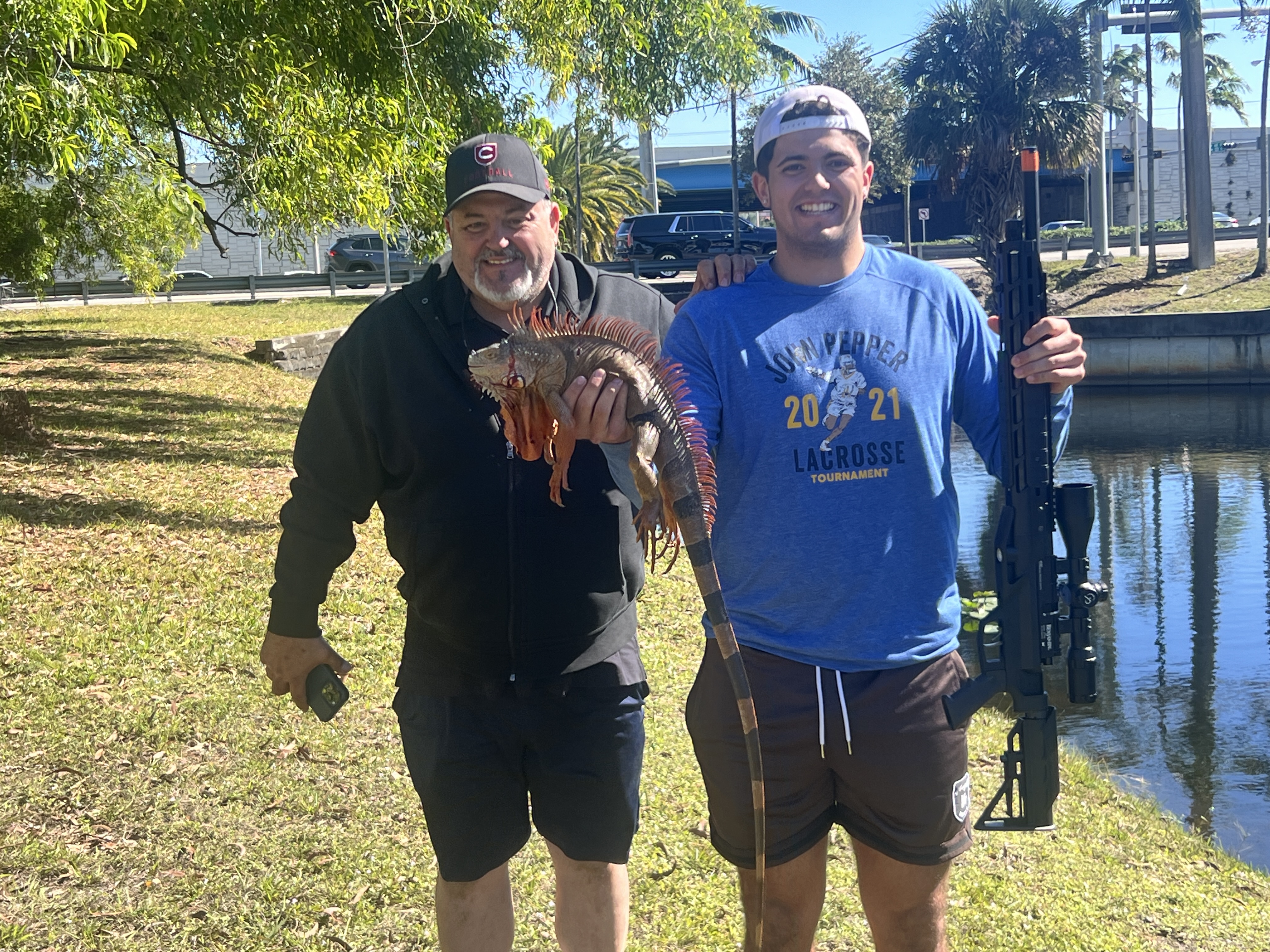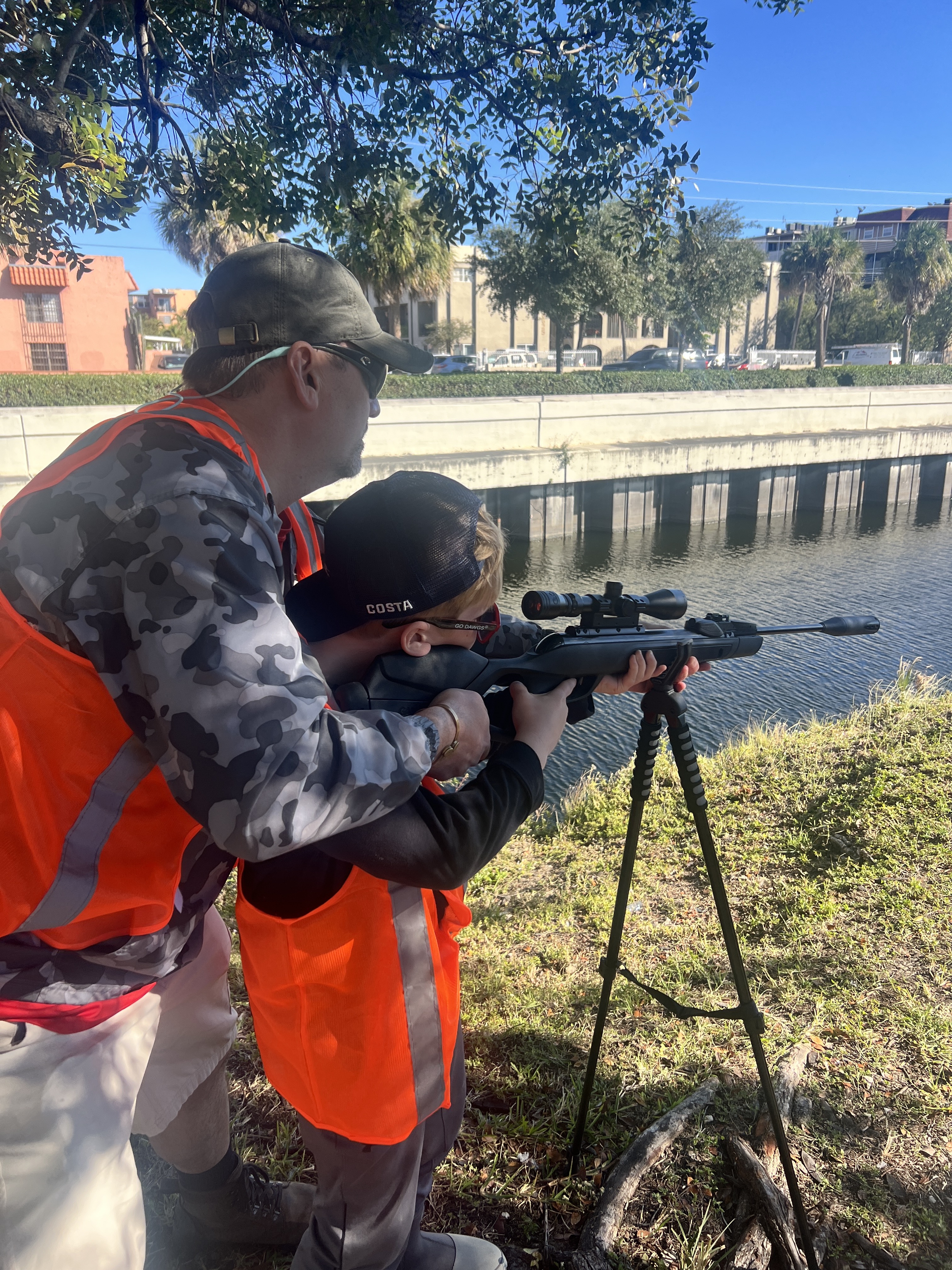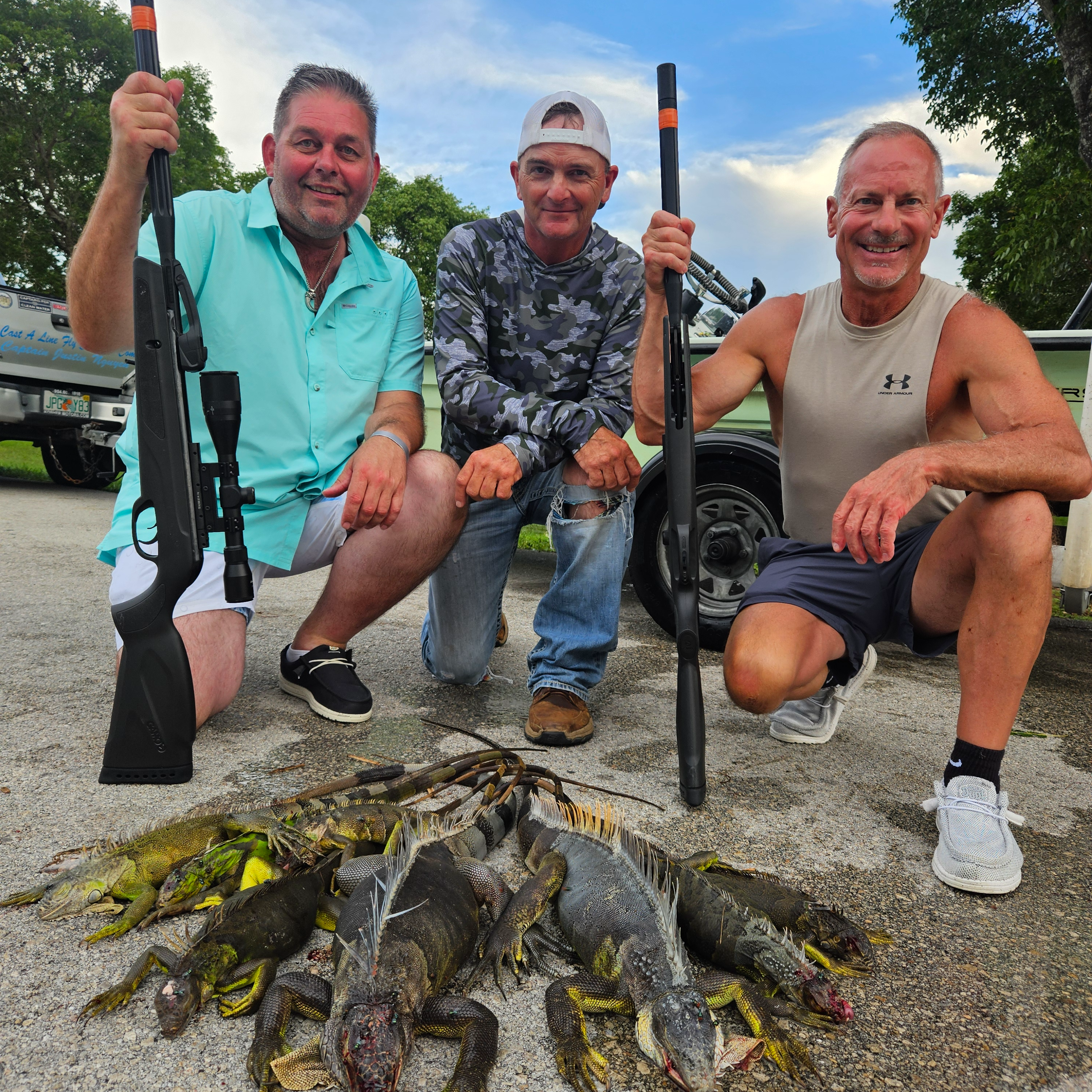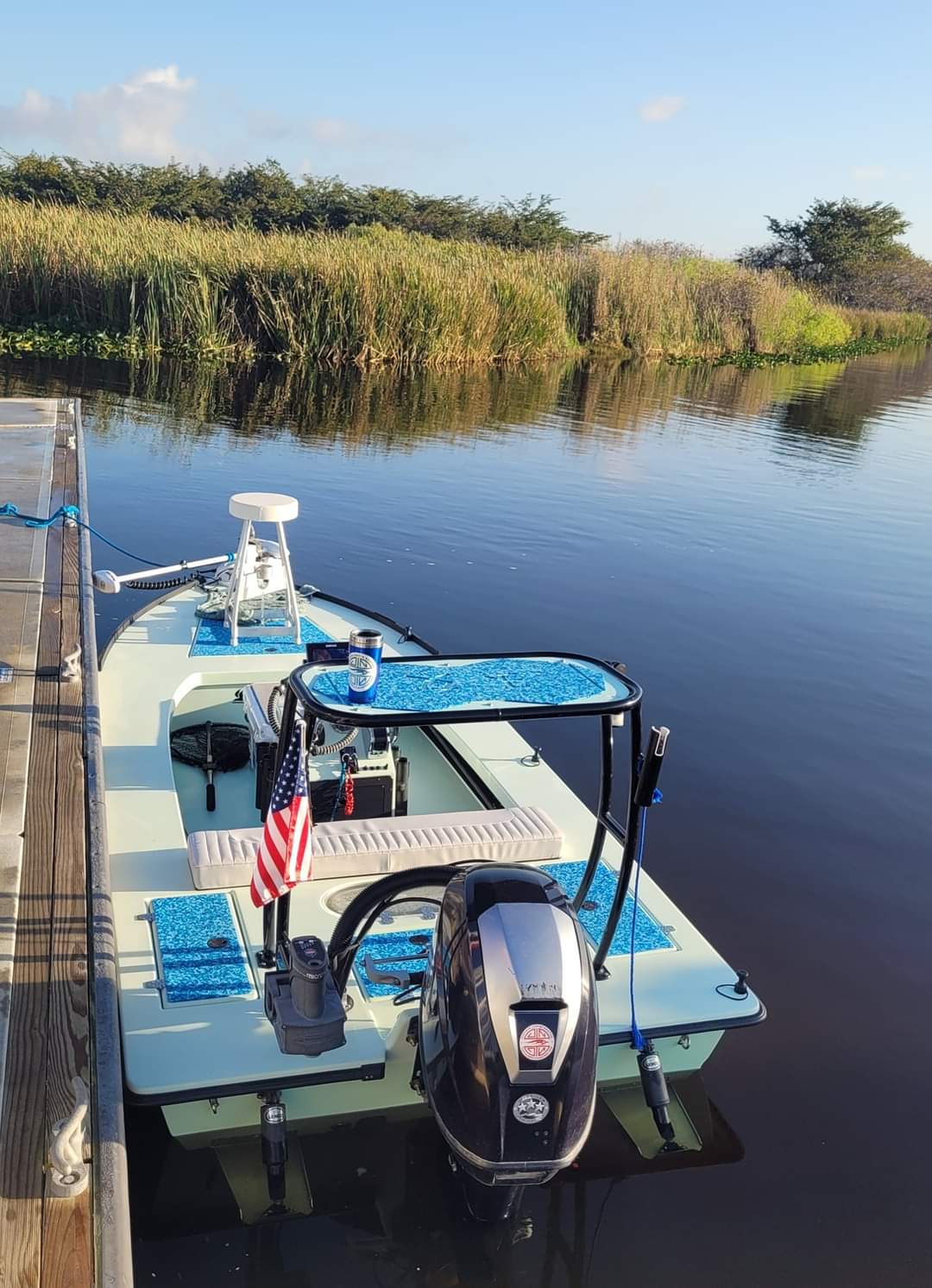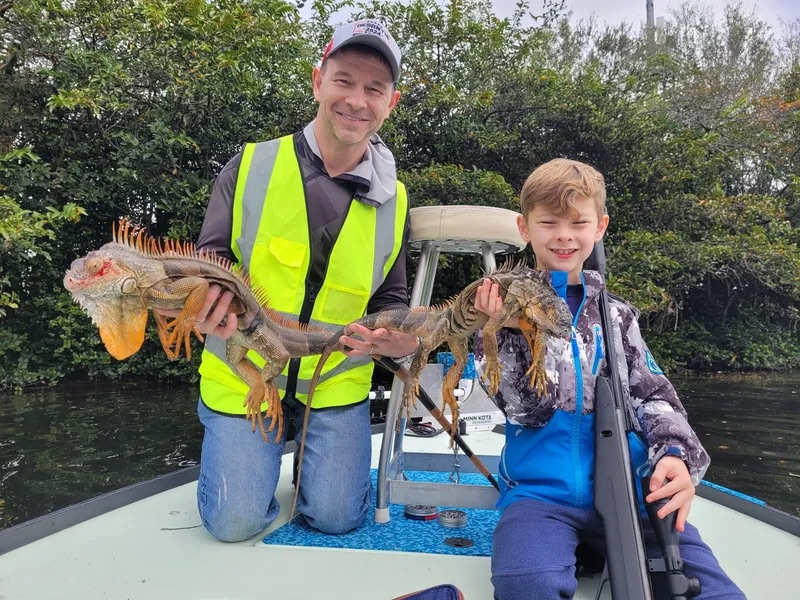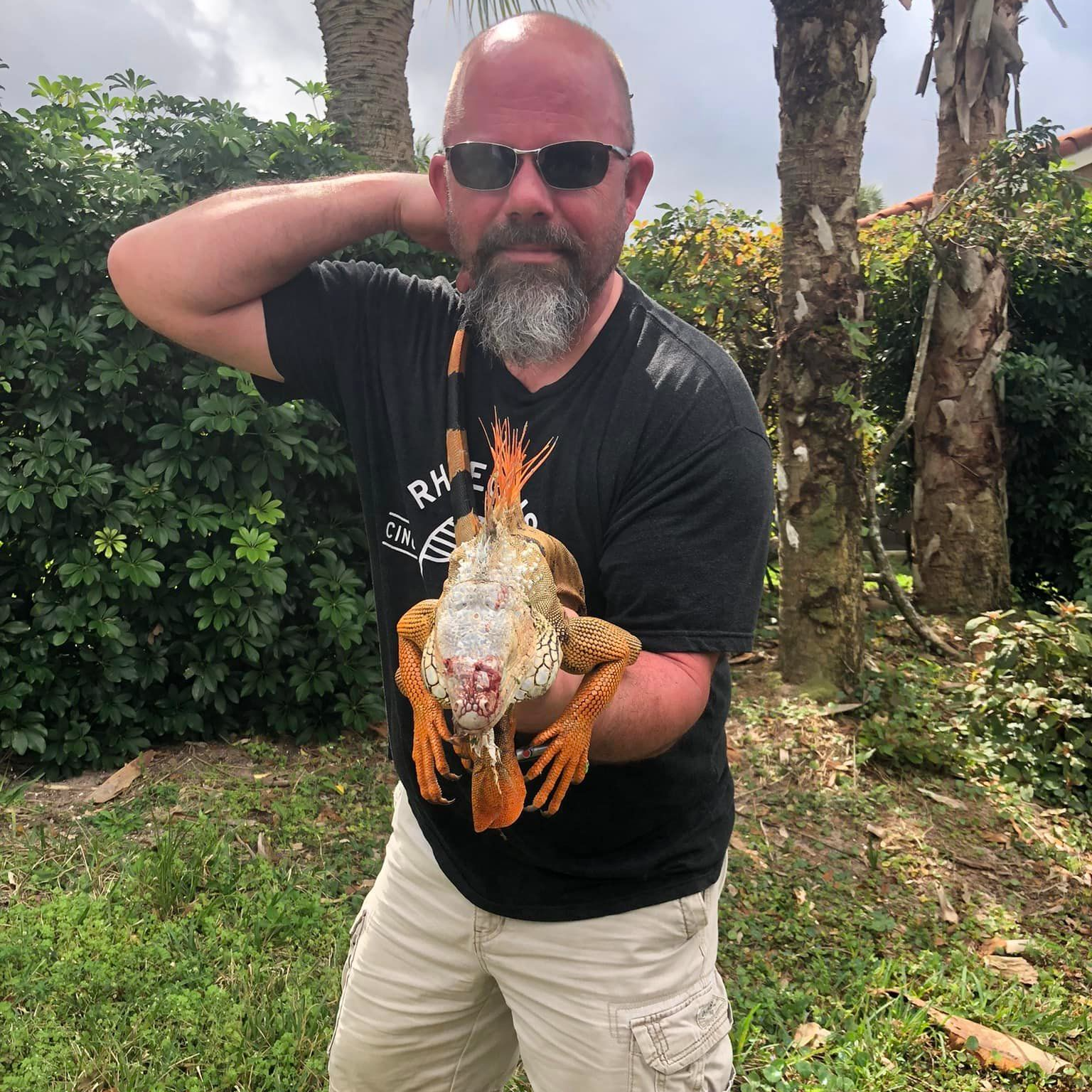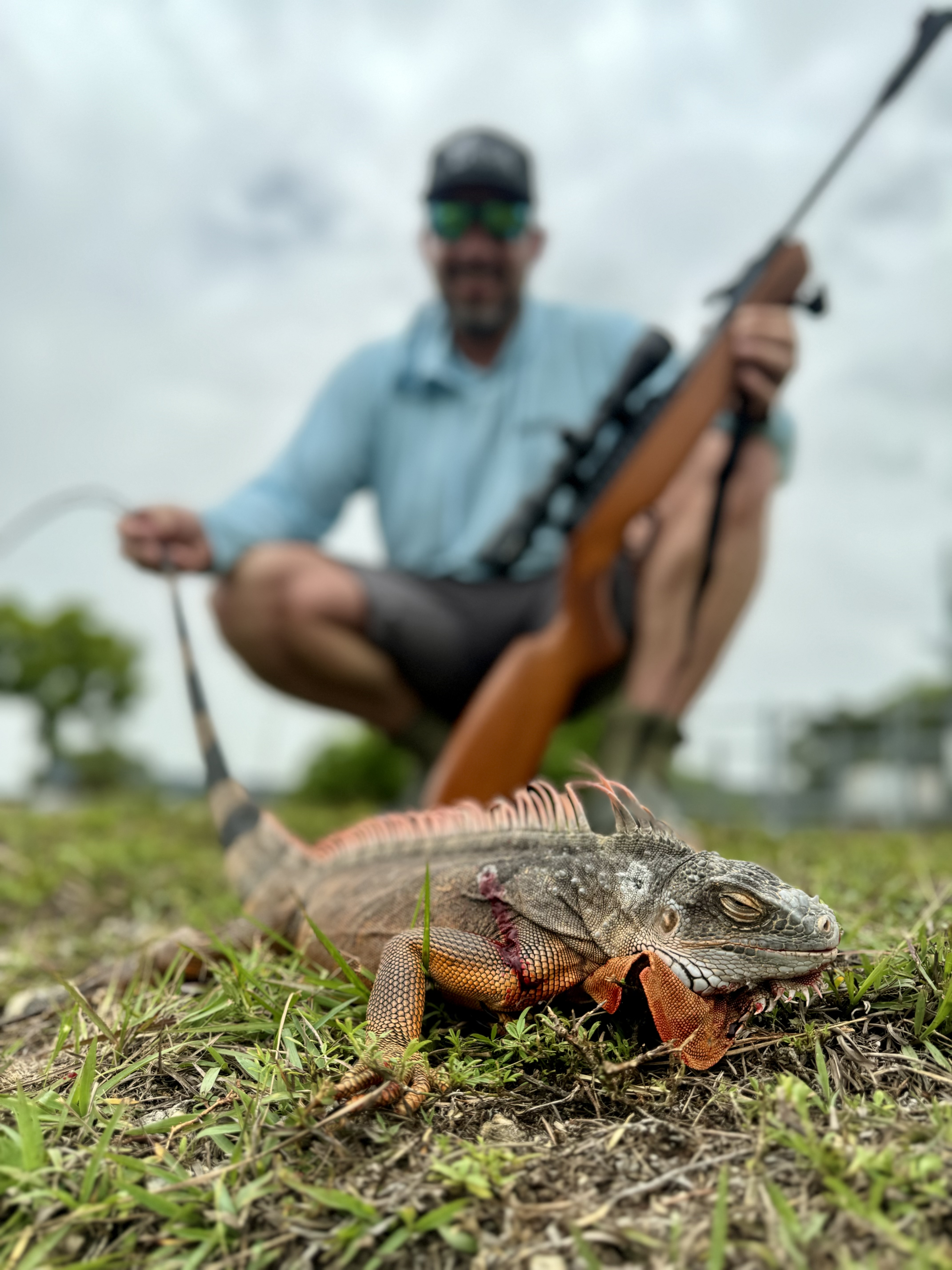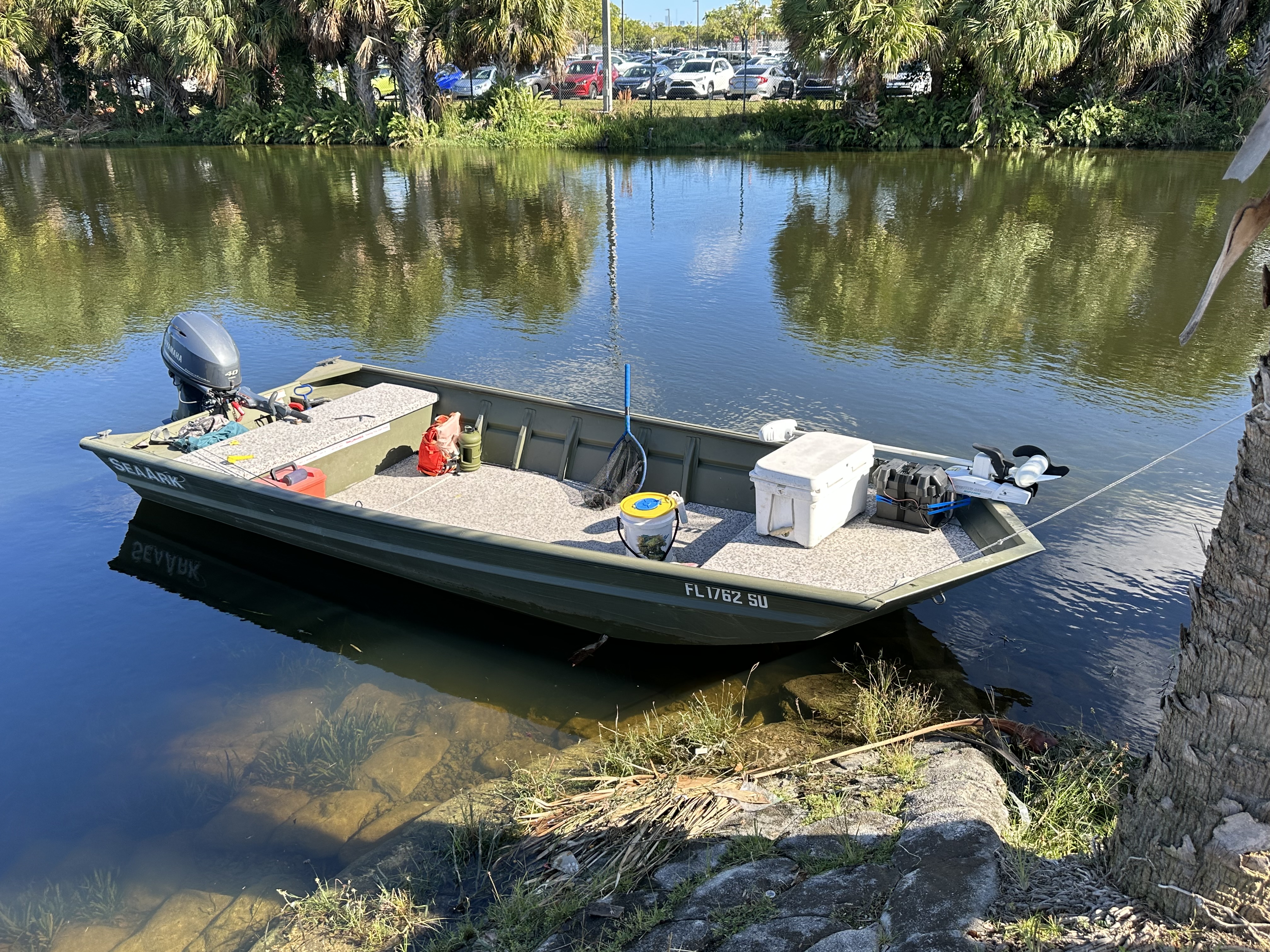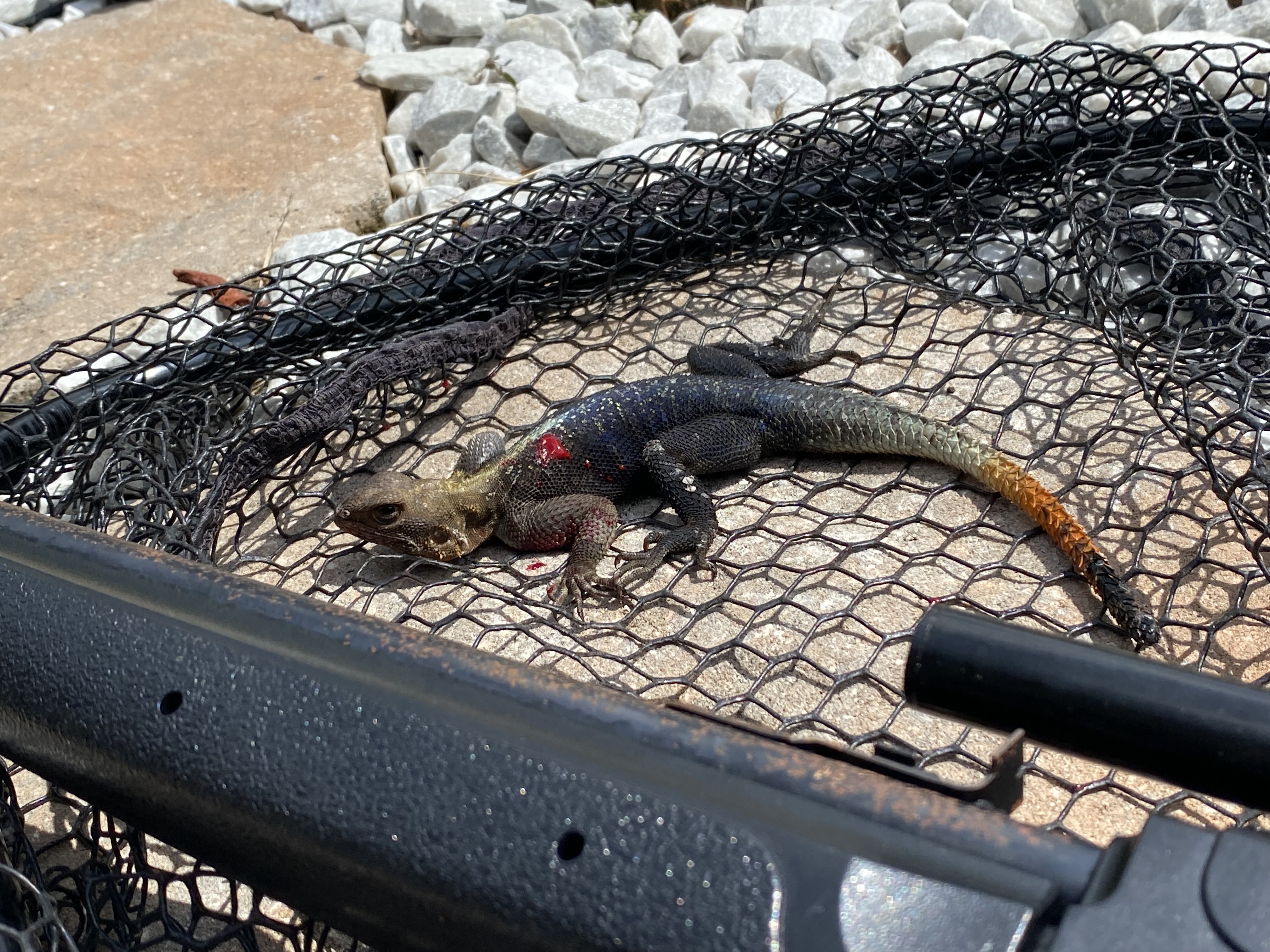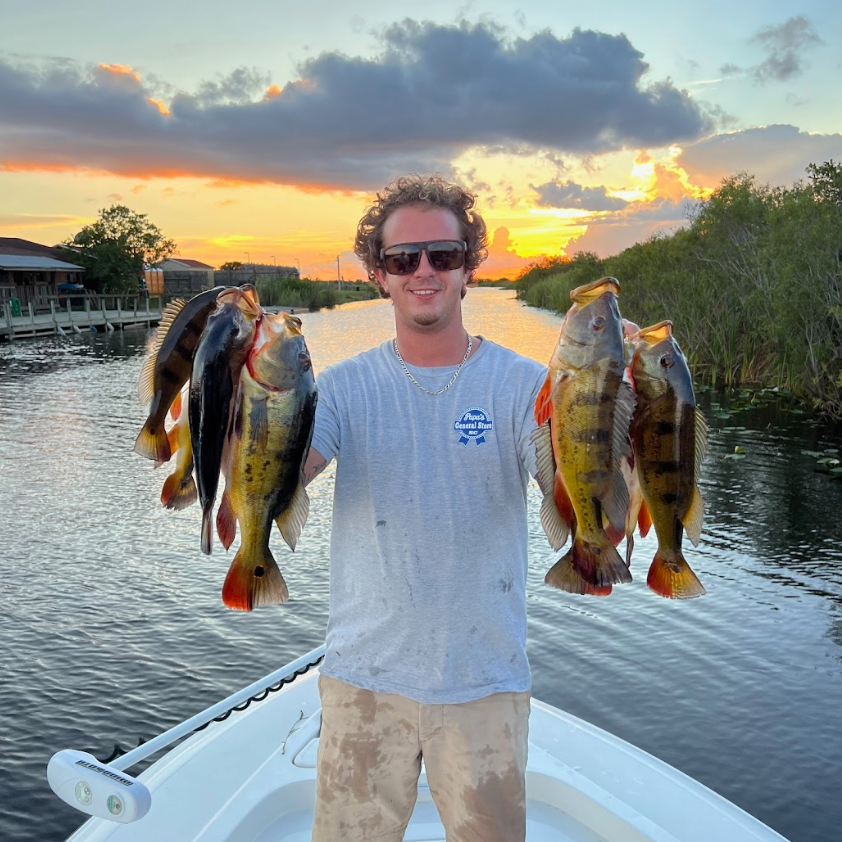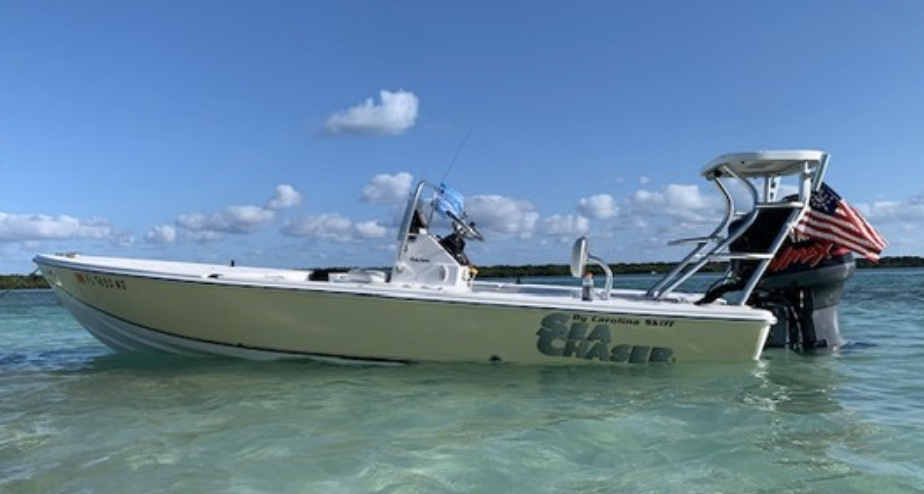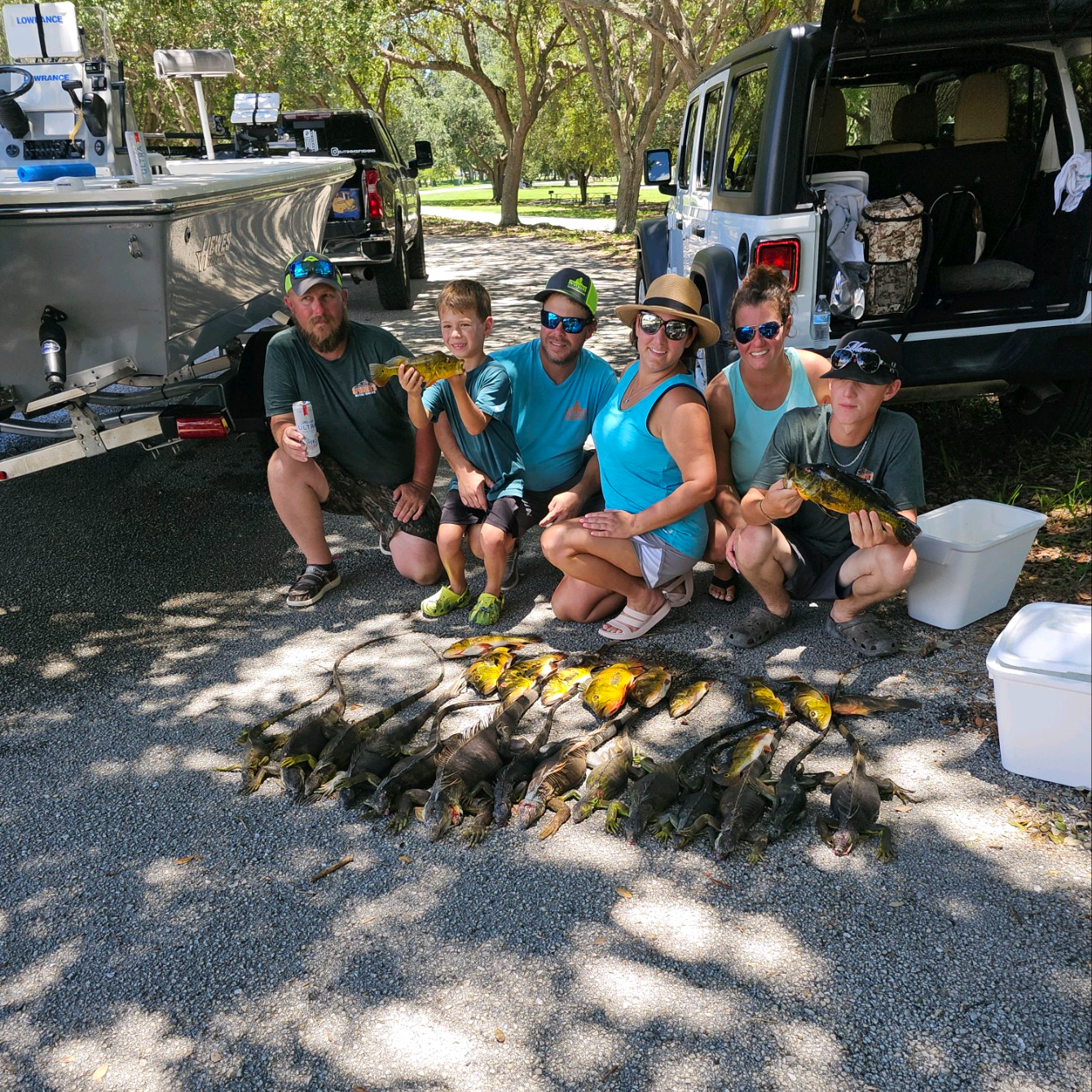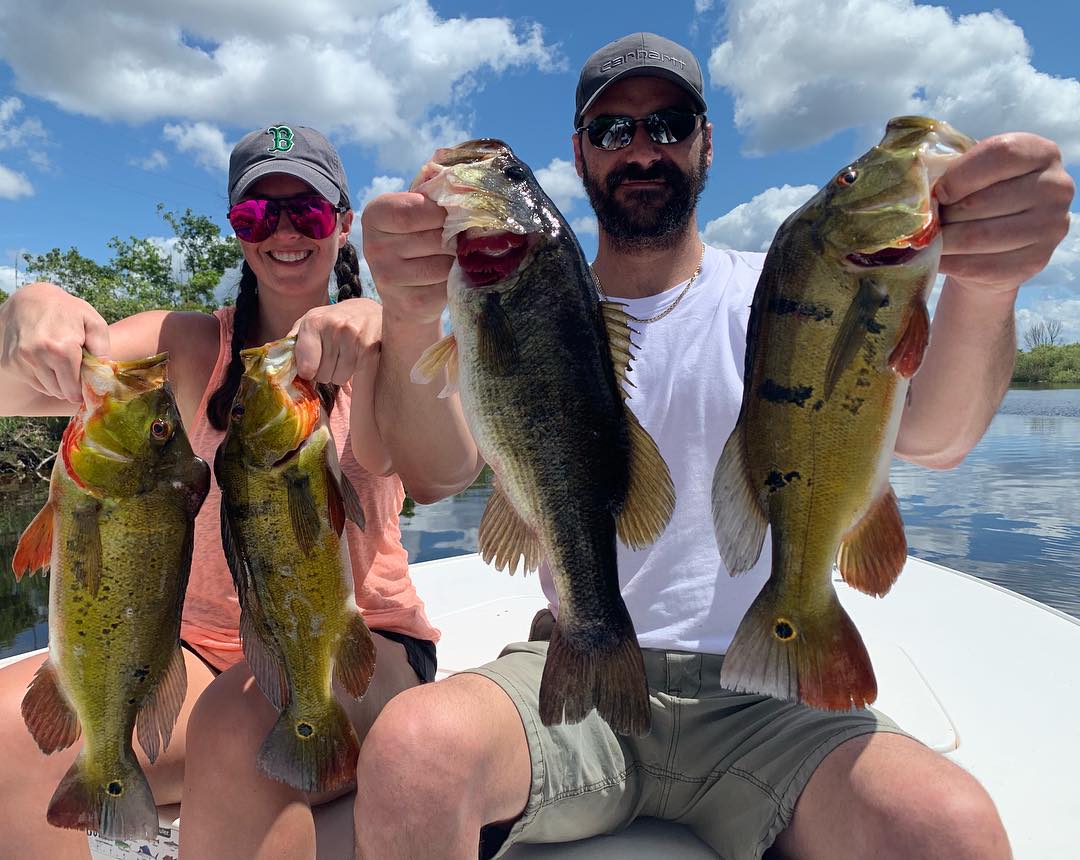Damn Good Guides
Experts Available 24/7
100% Weather Guarantee
Recently Booked Invasive Species Hunting Guides In Miami Beach, Fl
Invasive Species Hunting in Miami Beach
Iguana Blowgun Thriller!
Cast & Blast in Fort Lauderdale
Cast And Blast Adventures
Invasive Species Hunting in Plantation
Iguana Hunt In South FL
Peacock Bass + Iguana Charter
Invasive Species Hunting in Fort Lauderdale
Elite Guided Air Rifle Iguana Hunts
Invasive Species Hunting in Sunrise
Epic Iguana Hunts
“Our Damn Good Guides go above and beyond, and we’ve handpicked every single one. We’re passionate about the outdoors and look forward to getting you out on the trip of a lifetime, every time.”
Jonathan and Attison | Co-founders | Austin, Texas
All Target Species in Miami Beach
- Get it while it's HOT!
- This species is in play.
- You might get lucky (as long as things are in-season).
- Couldn't tell ya! (no data)
More Invasive Species Hunting Guides In Miami Beach, Fl
Iguana Hunt
Invasive Species Hunting in Miami
Iguana Hunting Adventure
Invasive Species Hunting in Fort Lauderdale
Multi Boat Iguana Hunt
Cast & Blast in Fort Lauderdale
Iguana Hunting / Peacock Bass Combo
Invasive Species Hunting in Fort Lauderdale
Iguana Hunting Fort Lauderdale
Invasive Species Hunting in Fort Lauderdale
Iguana Hunting Insanity FL
Need a Place to Stay?
Everything to Know About Booking a hunting trip in Miami Beach
What are the best invasive species hunting trips in Miami Beach?
The best invasive species hunting trips in Miami Beach are:
What is invasive species hunting in Miami Beach all about?
Invasive species hunting in Miami Beach, Florida, is a critical conservation effort aimed at managing non-native species that threaten local ecosystems. One of the primary targets for hunters in this coastal city is the Burmese python. These large constrictors, originally from Southeast Asia, have established populations in nearby natural areas like the Everglades. Pythons prey on a variety of native wildlife, including small mammals and birds, disrupting the delicate balance of the ecosystem. Hunting seasons for pythons typically coincide with cooler months, from late fall through early spring, when these reptiles are more active during daylight hours. Hunters utilize specialized techniques such as nighttime searches using thermal imaging devices and trained dogs to locate and capture pythons in their habitats, such as wetlands and marshy areas. Removing pythons helps mitigate their impact on local biodiversity and protects native species from predation.
Green iguanas are also a significant focus of invasive species hunting efforts in Miami Beach. These reptiles, native to Central and South America, have thrived in Florida's subtropical climate and urban environments, where they feed on vegetation and compete with native wildlife for resources. Hunters employ methods such as air rifles and traps to capture green iguanas, especially during periods when they are most active, basking in the sun or foraging for food. Managing the green iguana population is crucial for preserving local flora and reducing damage to landscaping and infrastructure caused by their feeding habits.
In the marine environment, invasive species hunting includes efforts to control populations of lionfish. These predatory fish, originally from the Indo-Pacific, have invaded the Gulf of Mexico and pose significant threats to native fish species and coral reefs. Divers play a vital role in spearfishing lionfish around reefs, wrecks, and rocky outcrops where they are commonly found. This method allows for targeted removal of lionfish, which helps restore balance to marine ecosystems and protect native marine life. Community involvement through organized hunts and tournaments raises awareness and promotes conservation efforts to safeguard Miami Beach's coastal habitats and biodiversity.
What are the most popular months to go invasive species hunting in Miami Beach?
In Miami Beach, Florida, invasive species hunting seasons are strategically planned to maximize effectiveness in controlling non-native species that threaten local ecosystems. One of the primary targets during these seasons is the Burmese python, which has established populations in nearby natural areas like the Everglades. Hunting for pythons typically occurs during the cooler months, from late fall through early spring, when these cold-blooded reptiles are more active and easier to detect. Hunters employ specialized techniques such as nighttime searches using thermal imaging devices and trained dogs to locate pythons in their habitats, such as wetlands and marshy areas. Removing pythons during these seasons helps reduce their impact on native wildlife by curbing predation and competition for resources.
Green iguanas are also a focus of invasive species hunting efforts in Miami Beach, with hunting seasons often spanning throughout the year. These reptiles, native to Central and South America, have adapted well to Florida's subtropical climate and urban environments, where they feed on vegetation and compete with native wildlife. Hunters use methods such as air rifles and traps to capture green iguanas, targeting them during periods when they are most active basking in the sun or foraging for food. Managing the green iguana population is essential for protecting local flora and minimizing damage to landscaping and infrastructure.
In the marine environment, invasive species hunting includes efforts to control lionfish populations in the Gulf of Mexico. Lionfish, originally from the Indo-Pacific, have become established predators in local reefs and coastal waters, posing significant threats to native fish species and coral reefs. Spearfishing for lionfish is often conducted year-round, with heightened efforts during warmer months when lionfish are more active around reefs, wrecks, and rocky outcrops. Divers participate in organized hunts and tournaments to remove lionfish from marine ecosystems, promoting community involvement and conservation awareness. Coordinating hunting efforts with the seasonal behaviors of invasive species ensures more effective management and conservation of Miami Beach's natural habitats and marine biodiversity.
What techniques are popular for invasive species hunting in Miami Beach?
Invasive species hunting in Miami Beach, Florida, employs a range of specialized techniques to effectively manage and reduce populations of non-native species that threaten local ecosystems. One of the primary methods used is targeted hunting for Burmese pythons, large constrictors that have invaded nearby natural areas like the Everglades. Hunters utilize tools such as thermal imaging devices and trained dogs to locate pythons in their preferred habitats, such as wetlands and marshy areas. These efforts are particularly effective during cooler months when pythons are more active during daylight hours. Once located, pythons are carefully captured to minimize harm to both the hunters and the snakes, helping to protect native wildlife from their predatory impact.
Green iguanas are another focus of invasive species hunting in Miami Beach, especially given their destructive impact on local vegetation and urban environments. Hunters employ methods such as air rifles and traps to capture green iguanas, targeting them in areas where they are most abundant, such as residential neighborhoods and parks. These methods are typically implemented during periods when iguanas are most active, such as sunny days when they bask in exposed areas. Managing the green iguana population is crucial for preserving native plants and mitigating the economic and ecological consequences of their presence.
In the marine environment, invasive species hunting includes efforts to control populations of lionfish, predatory fish that have invaded the Gulf of Mexico. Divers play a critical role in spearfishing lionfish around reefs, wrecks, and rocky outcrops where they congregate. This method allows for precise targeting and removal of lionfish, which helps restore balance to marine ecosystems and protect native fish populations. Organized events and community-driven initiatives often mobilize participation in lionfish removal efforts, promoting awareness and conservation efforts in Miami Beach. Employing a variety of hunting techniques ensures a comprehensive approach to managing invasive species and safeguarding the city's natural habitats and biodiversity.
What species are popular for invasive species hunting in Miami Beach?
Invasive species hunting in Miami Beach, Florida, targets several key species that have become established threats to the local environment and native biodiversity. One primary focus is the Burmese python, a large constrictor snake that has proliferated in nearby natural areas like the Everglades. These pythons prey on a variety of native wildlife, including small mammals and birds, disrupting the delicate balance of the ecosystem. Hunters employ specialized techniques such as thermal imaging devices and trained dogs to locate pythons in their habitats, such as wetlands and marshy areas. The cooler months, when pythons are more active during daylight hours, are typically preferred for hunting these elusive snakes to enhance detection and removal efforts.
Green iguanas are also a significant target for invasive species hunting efforts in Miami Beach. These reptiles, originally from Central and South America, have adapted well to Florida's subtropical climate and urban environments, where they feed on vegetation and compete with native wildlife. Hunters use methods like air rifles and traps to capture green iguanas, particularly during periods when they are most active basking in the sun or foraging for food. Managing the green iguana population helps protect local flora and reduces damage to landscaping and infrastructure caused by their feeding habits.
In the marine environment, invasive species hunting includes efforts to control populations of lionfish. These predatory fish, native to the Indo-Pacific, have invaded the Gulf of Mexico and pose significant threats to native fish species and coral reefs. Divers participate in spearfishing activities to remove lionfish from marine ecosystems, targeting them around reefs, wrecks, and rocky outcrops where they congregate. This method allows for precise removal of lionfish, which helps restore balance to marine ecosystems and protect native marine life. Community involvement through organized hunts and tournaments fosters awareness and engagement in marine conservation efforts in Miami Beach.
Recent Reviews
Other Featured Cities
- Fishing Charters Near Me
- Austin Fishing Guides
- Biloxi Fishing Charters
- Bradenton Fishing Charters
- Cabo San Lucas Fishing Charters
- Cancun Fishing Charters
- Cape Coral Fishing Charters
- Charleston Fishing Charters
- Clearwater Fishing Charters
- Corpus Christi Fishing Charters
- Crystal River Fishing Charters
- Dauphin Island Fishing Charters
- Daytona Beach Fishing Charters
- Destin Fishing Charters
- Fort Lauderdale Fishing Charters
- Fort Myers Fishing Charters
- Fort Walton Beach Fishing Charters
- Galveston Fishing Charters
- Gulf Shores Fishing Charters
- Hatteras Fishing Charters
- Hilton Head Fishing Charters
- Islamorada Fishing Charters
- Jacksonville Fishing Charters
- Jupiter Fishing Charters
- Key Largo Fishing Charters
- Key West Fishing Charters
- Kona Fishing Charters
- Lakeside Marblehead Fishing Charters
- Marathon Fishing Charters
- Marco Island Fishing Charters
- Miami Fishing Charters
- Montauk Fishing Charters
- Morehead City Fishing Charters
- Naples Fishing Charters
- New Orleans Fishing Charters
- New Smyrna Beach Fishing Charters
- Ocean City Fishing Charters
- Orange Beach Fishing Charters
- Panama City Beach Fishing Charters
- Pensacola Fishing Charters
- Pompano Beach Fishing Charters
- Port Aransas Fishing Charters
- Port Orange Fishing Charters
- Rockport Fishing Charters
- San Diego Fishing Charters
- San Juan Fishing Charters
- Sarasota Fishing Charters
- South Padre Island Fishing Charters
- St. Augustine Fishing Charters
- St. Petersburg Fishing Charters
- Tampa Fishing Charters
- Tarpon Springs Fishing Charters
- Venice Fishing Charters
- Virginia Beach Fishing Charters
- West Palm Beach Fishing Charters
- Wilmington Fishing Charters
- Wrightsville Beach Fishing Charters
Didn't Find What You Were Looking For?
Our guides are Damn Good Guides, which means they’re vetted by our team of outdoor experts who know them on a first-name basis. We hand pick each and every one of them, and our network spans all across the US and beyond.
The proof is in the pudding, and we’re incredibly proud of our 4.9 / 5 average review score. Hit the button below to see more trip options:
